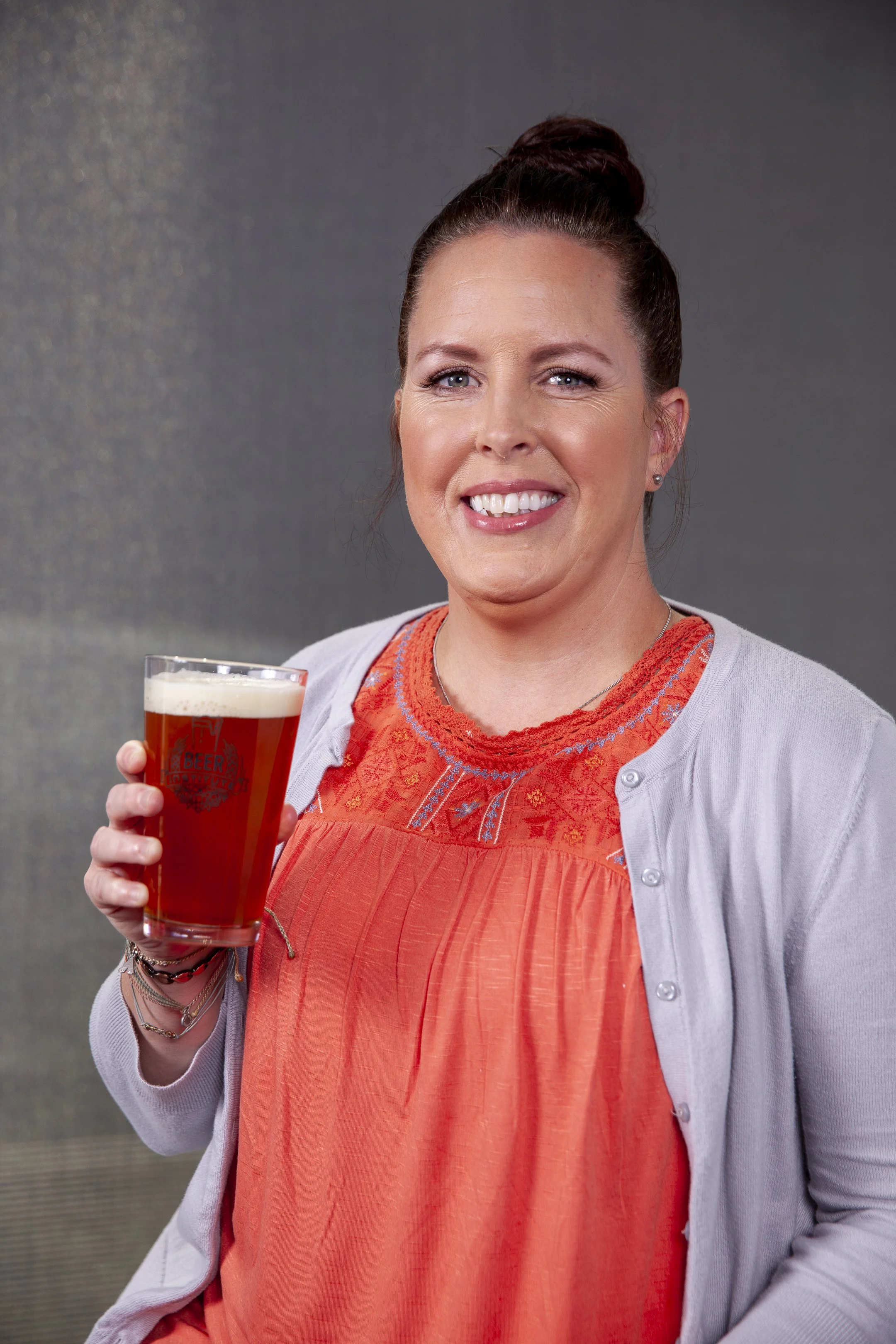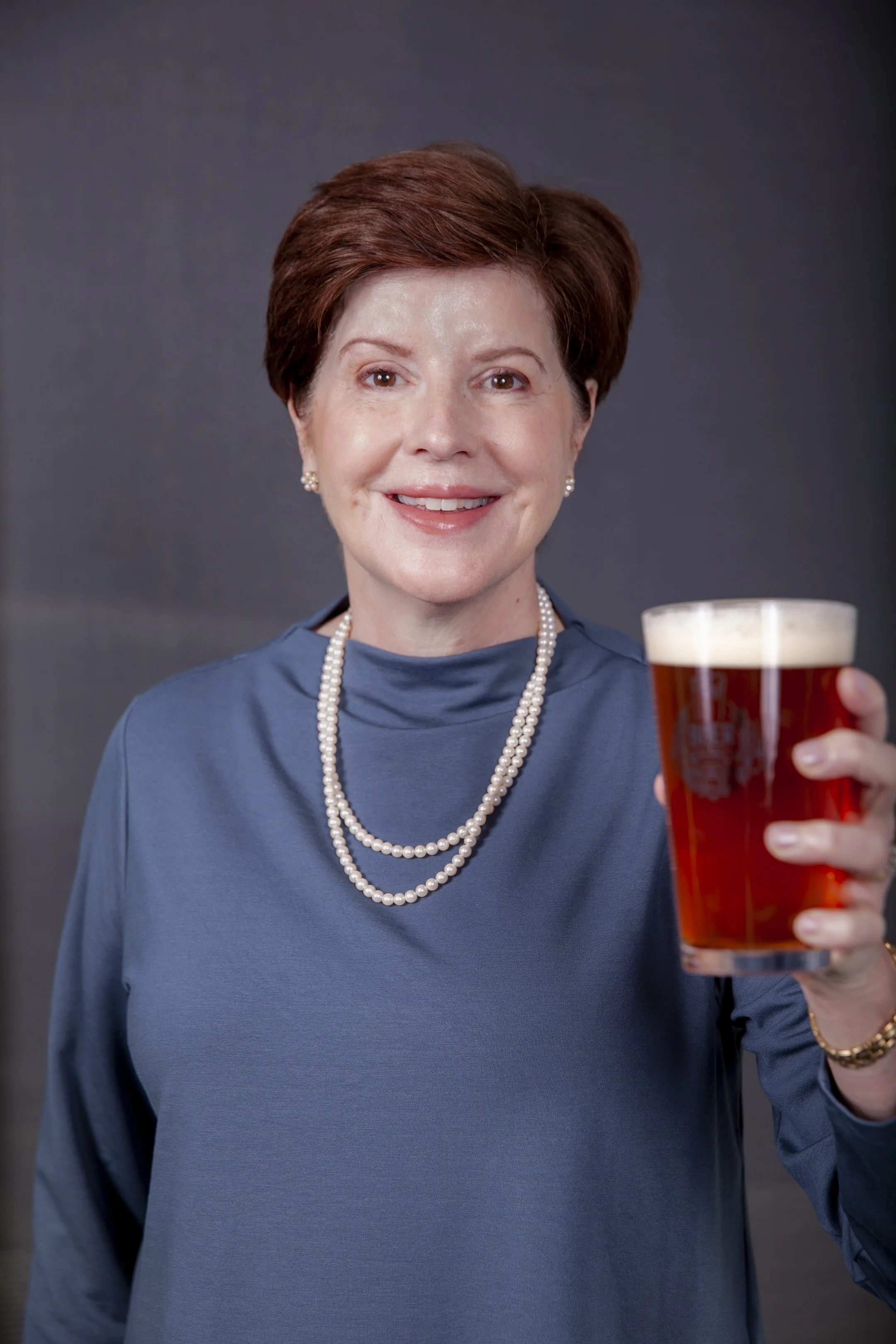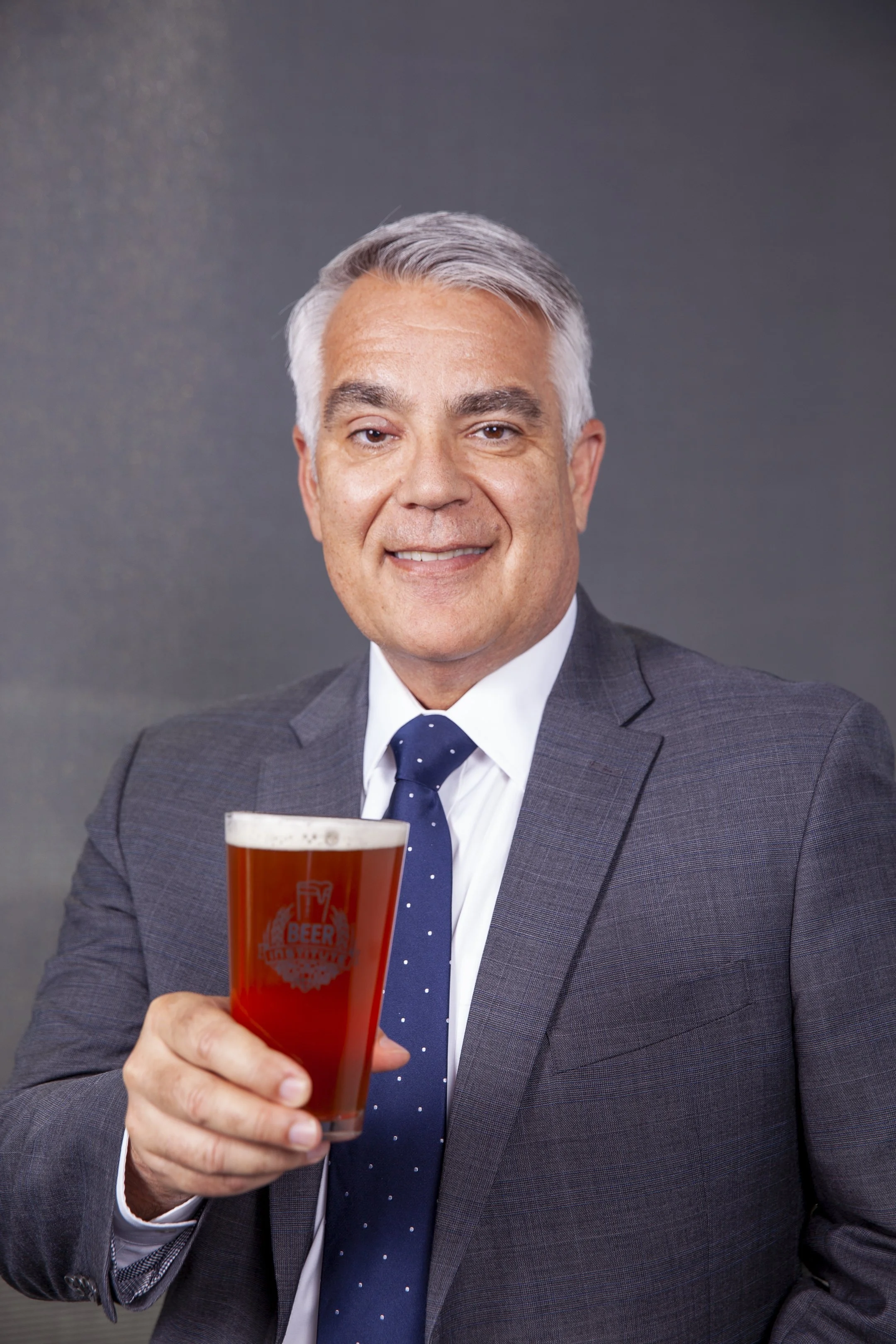
The Beer Institute
Annual Report 2022
Proudly representing our nation’s brewers, beer importers, and industry suppliers since 1862.
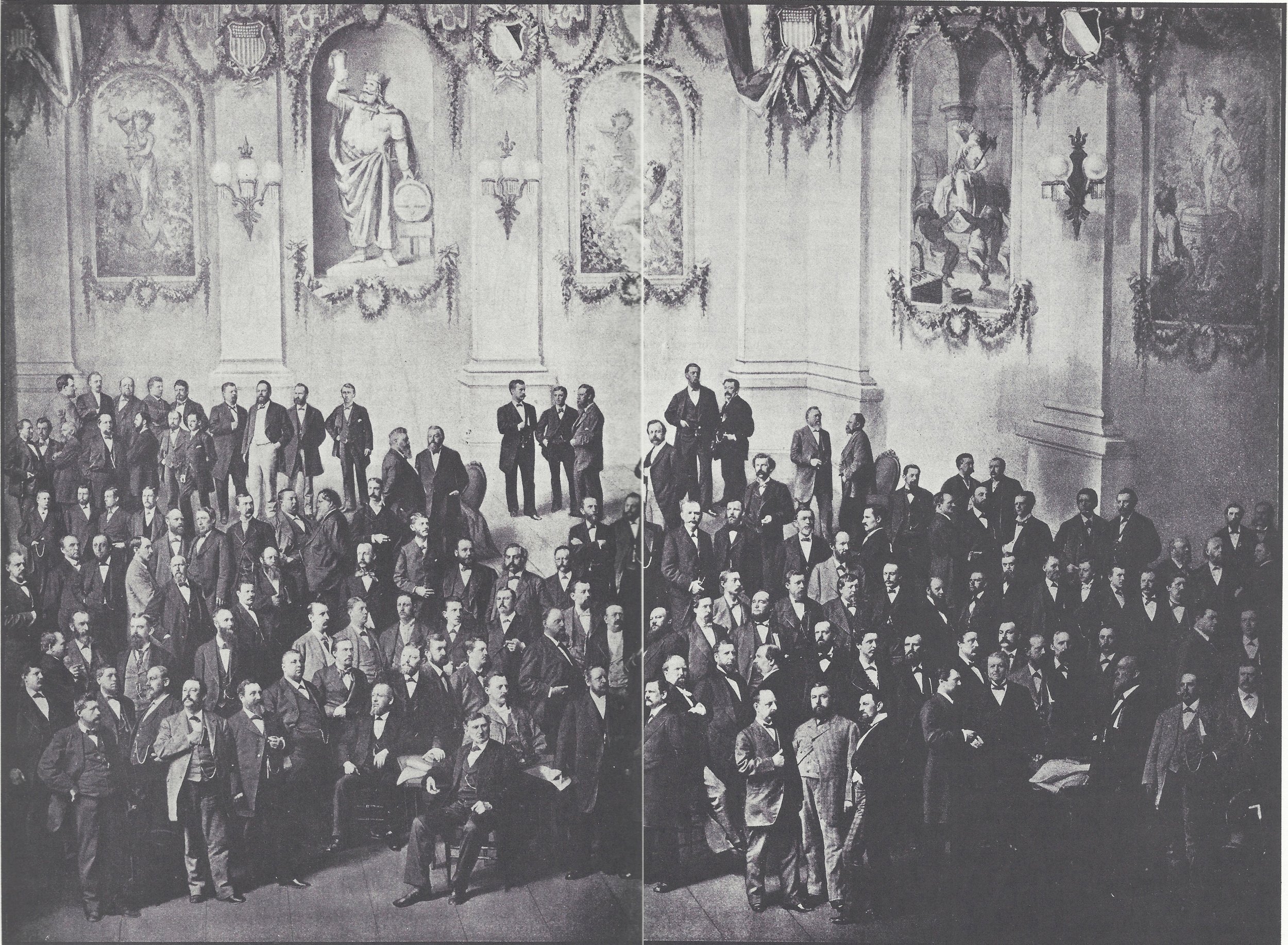
Founded in 1862 during the Civil War to address a new federal tax on beer, the Beer Institute has advocated for beer for a majority of the United States’ history. As the leading national trade association for the American beer industry, we have been tirelessly advocating for our members and the two million Americans whose jobs rely on beer. We proudly present to you our annual report for the Beer Institute’s 160th anniversary and invite you to scroll through our annual report and learn more about the work we have been doing on your behalf.
A critical issue we have focused on this year is Section 232 aluminum tariffs and their impact on the beer industry. We have worked closely with policymakers, including in Congress and the Biden Administration, to ensure that the interests of our members are acknowledged and to minimize the adverse effects of these tariffs on our industry.
We continue to emphasize the critical distinction between beer and other forms of alcohol, such as hard liquor and wine. Beer has a unique history, characteristics and qualities that make it special. Therefore, beer has been and should be treated differently when it comes to state and federal taxation, distribution and accessibility.
We are also proud to report that our membership has continued to grow this year, thanks in part to the hard work of our dedicated staff and the support of our members. We are excited to welcome our new CEO, Brian Crawford, and several other new faces to our team. With their expertise and leadership, we are confident that the Beer Institute will continue its aggressive and effective advocacy on behalf of the American brewing industry.
Thank you for your continued support of the Beer Institute. We look forward to continuing to work together to promote and protect the interests of the brewing industry.
160 Years of the Beer Institute
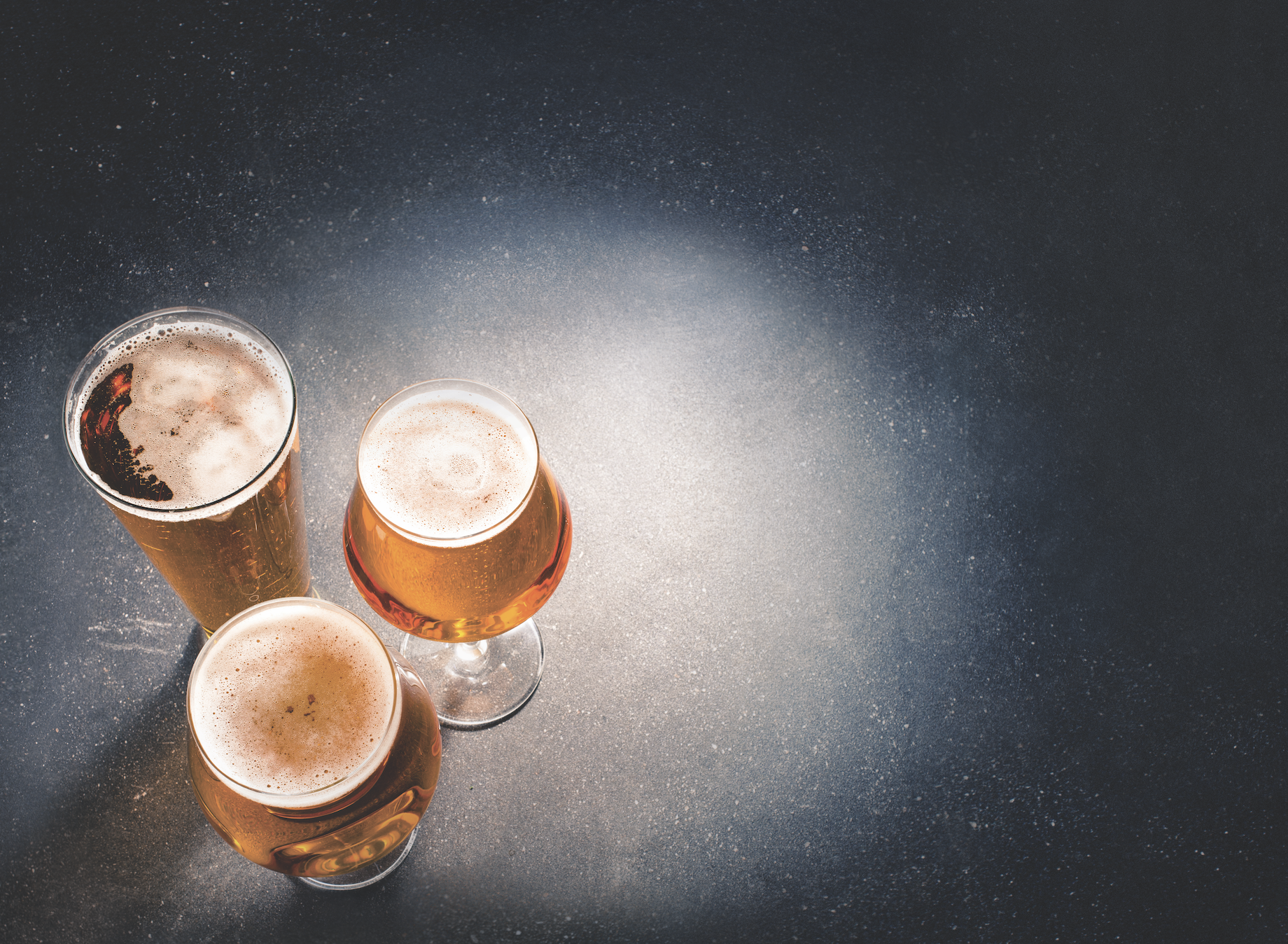
In 2022, we commemorated the 160th anniversary of the Beer Institute, one of our nation's oldest trade associations.
In November 1862, during the Civil War, representatives from 37 breweries—all German immigrants—met in New York City to address a new federal excise tax imposed on beer to fund the war effort. They formed the United States Brewers' Association (USBA), whose primary focus was fair taxation while also pushing back against the temperance movement.
In 1920, the rising tide of the temperance movement crested when the federal government instituted Prohibition, but the USBA worked with brewers to adapt and survive these changing political realities. Brewers switched from selling beer to producing goods like yeast, ice cream, syrups and even processed cheese. Thankfully, Prohibition was repealed in 1933, with then President Franklin Delano Roosevelt famously remarking, "I think this would be a good time for beer."
Following the end of the Second World War, the beer industry wanted to demonstrate that the beverage has a place in everyday life. The USBA launched an iconic advertising campaign, "Beer Belongs," which depicted men and women enjoying beer as an integral part of the American way of life. The middle of the 20th century also saw the advent of light beer and aluminum cans, which changed the face of the industry.
In 1986, the United States Brewers' Association officially reorganized into the Beer Institute, opening membership to beer importers and industry suppliers. This transition coincided with the boom of the craft beer revolution. With a new name and infrastructure, the Beer Institute was ready to take on the challenges of the 21st century.
Today, the Beer Institute advocates for sound public policy and fair tax and regulatory frameworks for brewers and beer importers.
To celebrate our 160th anniversary, the Beer Institute designed a special logo and marked the occasion throughout the year. In July, we held a 160th-anniversary dinner in Washington, D.C. that brought together Beer Institute and USBA employees both past and present, members of the Beer Institute, other industry partners and long-time friends. We also designed and distributed a limited-edition 160th-anniversary commemorative beer stein highlighting several pivotal moments in the Beer Institute's legacy, including the Civil War and the repeal of Prohibition.

Building Bridges
In 2022, the Beer Institute was excited to announce the launch of our "Building Bridges with Beer" digital platform, which celebrates beer’s unique ability to bring people together. As part of our year-long 160th Anniversary celebration of all things beer, this platform serves as a hub for the beer community to share their unique stories about the beverage’s role in their lives. From drinking one's first beer at a baseball game or rekindling a long-lost childhood friendship over a cold one, everyone has a personal story about beer's ability to connect people and spread joy. Hundreds of people from across the country submitted their stories, eager to connect, share and potentially win a limited edition Beer Institute Yeti tumbler.
While we have highlighted a few stories below, you can view more here.

Meet The Team
Board of Directors
Brendan Whitworth
Anheuser-Busch
Chairman & Senior Director
Gavin Hattersley
Molson Coors
Vice Chairman
Jim Sabia
Constellation Brands
Director
Maggie Timoney
HEINEKEN USA
Director
Pictured with Illinois Governor J.B. Pritzker (center) at the 2022 Beer Institute Annual Membership Meeting
Alternates to the Board of Directors
Dan Keniry
Anheuser-Busch
Alternate Director, Chairman of the Management Committee and Treasurer
Will Kinzel
Molson Coors
Alternate Director and Vice Chairman of the Management Committee
Bill Renspie
Constellation Brands Beer Division
Alternate Director
Jim Ryan
Constellation Brands Beer Division
Management Committee Member
David Morgenstern
HEINEKEN USA
Alternate Director and Management Committee Member
Ex-Officio Representatives to the Board of Directors
Randy Burns
O-I
Robert Budway
Can Manufacturers Institute
Alex Barth
John I. Hass, Inc.
Shawn Welch
ITW Hi-Cone
Louis Gimbel
S.S. Steiner, Inc.
Richard Goddard
The Southern Brewing Company
Michael Hranicka
MicroStar Logistics
Bradley Hittle
Two Roads Brewing Company
Marla Jeffrey
Gusmer Enterprises, Inc.
Piotr Jurjewicz
FIFCO USA
Ryan Krill
Cape May Brewing Company
Dharma Tamm
Rogue Ales & Spirits
Phil Rosse
Mark Anthony Group
Fred Matt
F.X. Matt Brewing Company
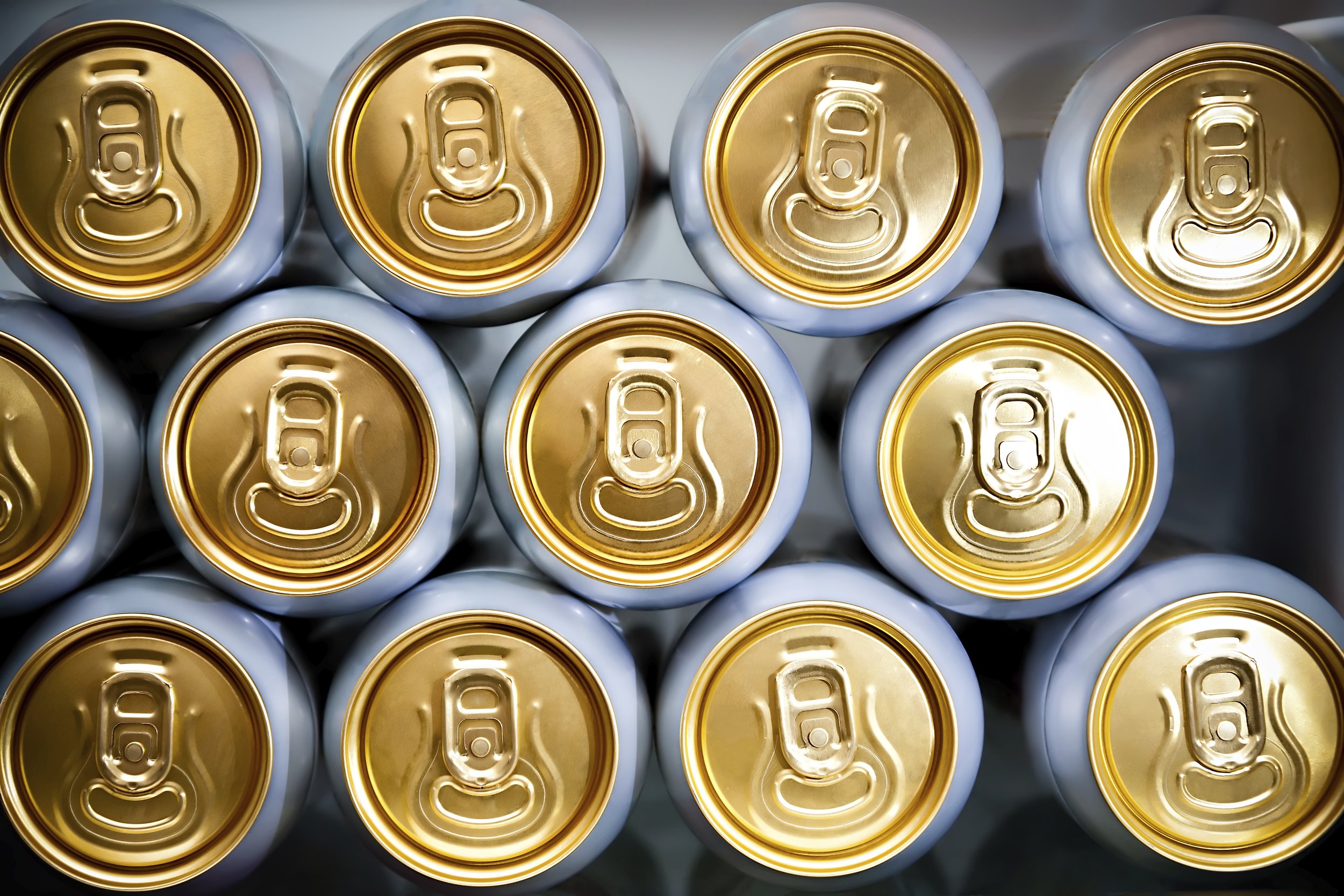
Aluminum
Aluminum is essential for beer packaging in the United States, and in 2021, the beverage industry purchased nearly $12 billion in cansheet. Aluminum cans, made primarily from recycled and scrap metal, are lightweight, making them easier to handle and less expensive to ship than other package types. Aluminum cans represent over 70 percent of U.S. brewers' packaging mix.
U.S. brewers buy cansheet from rolling mills and finished cans from manufacturers or third-party can packaging services. The contracts they sign include the Midwest Premium (MWP), which represents the cost of trucking, freight handling, storage, duties and other logistical charges.
The Beer Institute has tracked market trends related to the MWP for several years, calling out activities and practices that unfairly increase prices for brewers and other aluminum users. For example, the Beer Institute has asked the Biden Administration to investigate whether the standards used to set the MWP are fair and transparent to all market participants. We have also successfully engaged members of Congress to support the Aluminum Pricing Examination Act (H.R. 2698), which extends the jurisdiction of the Commodity Futures Trading Commission to include oversight of markets that set MWP reference prices.
In 2022, the Beer Institute testified before the International Trade Commission (ITC) regarding the effect of aluminum tariffs on the U.S. beverage industry. For example, beverage manufacturers pay a tariff surcharge on 100 percent of the cost of cansheet and cans, despite almost no tariffed metal being used in making these. The Beer Institute also provided the ITC with evidence that, as of July 31, 2022, U.S. beverage producers alone have incurred over $1.7 billion in tariff costs on aluminum not subject to a tariff. We expect a report from the ITC to Capitol Hill in Q2 of 2023. With increased Capitol Hill and Administration attention to these issues, the Beer Institute hopes to bring about much-needed reforms to highly questionable and concerning aluminum industry practices.

Differentiation
Recognizing the differences between beer, liquor and wine is essential for policymakers and regulators when crafting laws and policies related to the alcohol industry. It is also important for consumers to understand these differences in order to be informed about the drinks they purchase. Over the last year, the Beer Institute has advocated in Washington, D.C. and state capitals nationwide for a clear differentiation between different types of alcohol.
During the second half of the 117th Congress, beer and wine trade associations joined together to educate Congress on the importance of differentiation. The Beer Institute, along with the National Beer Wholesalers Association (NBWA), Brewers Association (BA), Wine Institute (WI) and Wine America (WA), met with offices that oversee the tax legislative writing process and leadership on Capitol Hill. During these meetings, the coalition emphasized the importance of keeping wine, beer and liquor separate in the tax code, as it was when Prohibition was repealed and then reaffirmed in 2020 when the Craft Brew Modernization Act (CBMTRA) was made permanent. Members of Congress acknowledge the industry's previous effort to work in unison to pass CBMTRA and recognize the need for an industry-wide approach when making adjustments to the federal excise tax. No one introduced federal legislation in 2022 that changed the status quo on differentiation.
“NO ONE INTRODUCED FEDERAL LEGISLATION IN 2022 THAT CHANGED THE STATUS QUO ON DIFFERENTIATION.”
Last year, the hard liquor industry introduced legislation in several states that would provide unnecessary tax carveouts for canned cocktails. The Beer Institute led a coalition of brewers and beer trade associations to defend beer and correct hard liquor's flawed narrative. Our message was strong: proposals to reduce taxes on liquor products are a bad idea. Local beer businesses are too valuable for local economies to be hurt in exchange for increased out-of-state liquor company profits.
Our efforts proved successful, and hard liquor's efforts failed in seven states (Alabama, Arizona, Hawaii, Kentucky, Maryland, Washington and West Virginia). Other states also failed to take up the controversial legislation.
Beer will remain vigilant of hard liquor’s efforts in the states and vigorously defend beer's significant economic value in communities across the country and its storied place in American society.

Competition
In Summer 2021, President Biden signed an Executive Order calling on government agencies to examine various industries, including the alcohol industry, to assess ways to increase competition. The Beer Institute submitted substantive comments, providing suggestions for reforms to remove burdensome regulations and further support an already competitive beer industry. A diverse coalition of stakeholders that rely on the beer industry joined the Beer Institute to reiterate the beer sector’s highly competitive nature.
The facts are undeniable: the American beer industry has grown substantially over the past few decades. Since 2010 alone, over 10,000 new breweries have been permitted, and today, the beer industry supports over two million American jobs—from agriculture and manufacturing to construction and transportation—and contributes over $331 billion to our nation's economy. These numbers illustrate a thriving beer economy filled with tens of thousands of great products for consumers to enjoy. Even during the pandemic, which significantly impacted brewers and our industry partners, over 700 new craft breweries opened.
“THE FACTS ARE UNDENIABLE - THE AMERICAN BEER INDUSTRY HAS GROWN MASSIVELY OVER THE LAST FEW DECADES."
In January 2022, the Treasury Department issued a 64-page ideological narrative about the alcohol industry. The report, a disjointed collection of conjecture and speculation, ignored facts about the economic contributions of brewers and the incredibly vibrant and innovative beer sector.
Since the deeply-flawed Treasury Department report came out, the Beer Institute has worked to get the correct the record based on facts: the beer industry is incredibly competitive and brewers are significant job creators with an outsized national economic impact. Each job in the beer industry generates another 30 jobs in related industries
The Beer Institute will continue to encourage Congress and the Biden Administration to look at the facts and decrease regulatory burdens for all brewers. We have a vibrant industry with over 6,600 operating breweries in every congressional district nationwide and more are coming online each day.

Rail Strike
Rail plays a significant role in beer manufacturing. Freight railroads transport around 1.6 million carloads of grain and other farm products in a typical year, including raw materials for beer. One railcar can carry enough barley for 94,000 gallons of beer. Last summer, the American rail system stood on the edge of a precipice as rail unions and companies struggled to agree on a new contract, forcing the White House to create a presidential emergency board to publish recommendations for a compromise between carriers and labor unions. The Beer Institute wrote congressional leaders in September requesting congressional intervention if the parties could not agree. The Beer Institute also worked with multiple trade associations in Washington, D.C., signing letters and writing to Capitol Hill to ensure that the rail dispute did not result in a strike that would harm American manufacturing. Following the Thanksgiving holiday break, Congress passed a resolution approving the recommended compromise and averting the rail strike, which President Biden signed into law on December 2.
Dietary Guidelines Update
The moderate drinking guidelines provide advice from the federal government on how many alcohol beverage drinks a person can consume each day and still be reasonably assured that negative health consequences are minimal. The guideline is up to two drinks per day for men and one for women. Multiple federal agencies share this guidance, which is set every five years in the Dietary Guidelines for Americans.
The process to publish the 2025-2030 Dietary Guidelines for Americans (DGA) officially began on April 15, 2022, with a Federal Register notice that surprised the wine, liquor and beer industries. The U.S. Department of Health and Human Services (HHS) announcement included a notification that alcohol research questions will not be within the scope of the 2025 Dietary Guidelines Advisory Committee (DGAC).
Federal law directs the U.S. Department of Agriculture (USDA) and HHS to publish a report providing nutritional and dietary information and guidelines for the public "based on the preponderance of scientific and medical knowledge current at the time of publication." The report has historically included alcohol beverages. With a panel of experts appointed by the two agencies, the DGAC independently evaluates the scientific research and writes the report, which will serve as the basis for the next edition of the DGA.
Guidance on moderate alcohol consumption will stay in the 2025 DGA. However, in the Federal Register announcement, HHS said that "[a]lcoholic beverages remain a high priority topic, but because it requires significant, specific expertise and has unique considerations, it will be examined in a separate effort led by HHS agencies that support work on this topic."
In 2023, the Beer Institute's advocacy with HHS will focus on encouraging the agency to implement a rigorous, objective and transparent review of scientific evidence before any consideration to change the existing moderate drinking guidelines. Advice on alcohol consumption must be trusted, believable and reasonable. The beer industry wants a thorough and transparent review of the scientific evidence base for alcohol consumption.
Drunk and Drugged Driving Policy Priorities
Traffic safety experts and law enforcement agencies throughout the U.S. are working to reduce the drastic increase in traffic fatalities over the past three years. According to the National Highway Traffic Safety Administration, this increase in deaths is due to all hazardous driving behaviors, including excessive speed, distracted driving and drunk and drugged drivers.
In 2022, the Beer Institute reaffirmed its top policy priorities to prevent drunk driving. We sought opportunities within Congress to advocate for measures that help states deal with drunk driving, including drivers impaired with multiple substances, such as THC from cannabis products, "Benzo" drugs and other narcotics.
-
Persistent drunk drivers and drivers with BAC higher than 0.15 are still some of the most dangerous drivers on our roads. Policy measures that produce swift, certain and escalated penalties are as necessary as ever.
-
Multi-substance impaired driving is the operation of a motor vehicle while impaired by drugs and alcohol or a combination of drugs. To identify, deter and treat the multi-substance impaired driver, the U.S. beer industry supports the multi-substance impaired driving prevention objectives in NHTSA’s three-year strategy to reduce total traffic fatalities.
-
The Beer Institute is hopeful that emerging in-vehicle technology that senses when drivers are drunk or drug impaired, distracted or sleepy will help reduce roadway fatalities. The direction to NHTSA from Congress in the 2021 Infrastructure Bill to expedite rulemaking on this technology is closely monitored by the Beer Institute and many other national traffic safety stakeholders.
-
Education programs aimed at preventing all forms of impaired driving can be supported through public policy. Altering social norms, educating servers and sellers of alcohol beverages, educating the public on the effects of alcohol and other drugs and encouraging the use of designated drivers and rideshare programs are all examples NHTSA cites in its “Uniform Guidelines for State Highway Safety Programs.”

Advertising and Marketing Code Updates
Brewers have a longstanding commitment to promoting responsible consumption of their products. The Beer Institute Advertising and Marketing Code is a tool our members use to avoid advertising alcohol beverage products to minors or in ways that appeal to minors, encourage excessive or irresponsible consumption or depict illegal activities, such as drunk driving. In 2022, the Beer Institute made two significant changes to its advertising and marketing code to avoid advertising and marketing alcohol beverages in ways that appeal to minors.
First, to ensure that advertising and marketing materials target an audience of legal drinking age, the Beer Institute amended its ad code to include an updated audience demographic of no less than 73.6 percent of legal drinking age adults. This change reflects data from the 2020 Census showing that that is the percentage of the U.S. population aged 21+.
Second, the Beer Institute added language to its ad code addressing brewer marketing and advertising of alcohol variants of non-alcohol brands. While these products are not new, additional guidance may be helpful to Beer Institute members.
Finally, the Beer Institute joined other industry associations in supporting an appeal to the Supreme Court by Jack Daniel's products in a case involving alleged trademark infringements of famous alcohol brands. The Beer Institute and other industry associations argued that the industry's ability to self-regulate alcohol advertising would be adversely affected if the law allowed an infringer's claim of humorous use to prevail with respect to alcohol brands. The Supreme Court has agreed to hear the appeal.
Year in Review
Beer is Back
This year marked a return for beer, highlighting its resilience and leader as America's favorite alcohol beverage. While the industry has faced many challenges during the past two years, beer bounced back in 2022, returning to pre-COVID norms for volume sold to distributors. Several factors are driving this return for core beer, including the growth of Mexican imported beers, which are up 12% year-over-year through September 2022 and continue to drive growth for imported beer brands. Nearly all growth in craft beer was from bold styles of imperial and hazy IPAs. Finally, new better-for-you products and zero-alcohol beer are increasing in popularity and expanding into in-premise establishments, adding new drinking occasions and flavorful alternatives for drinkers wanting a break from alcohol. Segments of beyond beer also contributed to growth, with well-established FMB brands fueling significant volume increases, along with new volume in innovation from hard lemonades and teas, ranch waters and other flavored hard beverages.
“In the year-to-date 2022 (through October), beer volume in the on-premise is very close to returning to pre-COVID norms…”
2022 was also an important year for on-premise channels. Before the pandemic, on-premise accounted for approximately 15% of the total beer volume sold in the U.S.. In 2020, that proportion dropped to less than 9% of volume but bounced back to 13% in 2021. In the year-to-date 2022 (through October), beer volume in the on-premise is very close to returning to pre-COVID norms, with 13.5% of the volume sold in on-premise channels. The critical question is, how do we completely close the gap and regain the remaining 1.5 share points? Perhaps the better question is, will we ever return to pre-COVID share for the on-premise?
One of the most prominent economic factors in 2022 was inflation, with price increases across energy and food and beverage categories reaching the highest rates in decades. Despite these record-breaking increases, beer price increases remained well below that of food and beverages. That said, many consumers are impacted by overall inflation, with 7 in 10 drinkers claiming they will adjust their holiday celebrations due to inflation. While inflation is less likely to impact beer, we will see some impact in 2023, with premiumization in alcohol slowing and consumers potentially shifting consumption to off-premise occasions. Now, more than ever, beer will serve as an affordable luxury and beverage of choice to say “cheers” with friends and family in the new year.
Hill Climb and Beer Champion Awards
As part of this year's 160th celebrations, the Beer Institute hosted its annual Hill Climb, where industry representatives from around the country came together on Capitol Hill for over 40 targeted meetings with members of Congress and staff. They discussed key issues facing the brewing industry during these meetings, including lifting Section 232 tariffs on aluminum while bringing clarity to the aluminum pricing process, encouraging a rigorous and sound review of the next dietary guidelines, protecting the differences between beer, wine and liquor, increasing access and investment in recycling infrastructure and highlighting beer's critical role in the American economy.
Following the Hill Climb, the Beer Institute hosted a reception for members of Congress and staff to enjoy a cold one with the people producing their favorite brands. Attendees took pictures with Screech—the Washington Capitals mascot—while toasting the bipartisan efforts of members of Congress who supported America's beer industry. We rounded out the night by presenting a select few with our "Beer Champions Awards," given annually to an equal number of Democrats and Republicans from both the House and Senate who have supported the beer industry and the more than two million American employees who rely on a vibrant beer economy.
2022 Beer Champions:
Senator Tammy Baldwin (D)
Wisconsin
Senator Tom Cotton (R)
Arkansas
Senator John Hoeven (R)
North Dakota
Senator Bob Menendez (D)
New Jersey
Rep. Sanford Bishop (D)
Georgia
Rep. Ken Buck (R)
Colorado
Rep. Rodney Davis (R)
Illinois
Rep. Al Lawson (D)
Florida
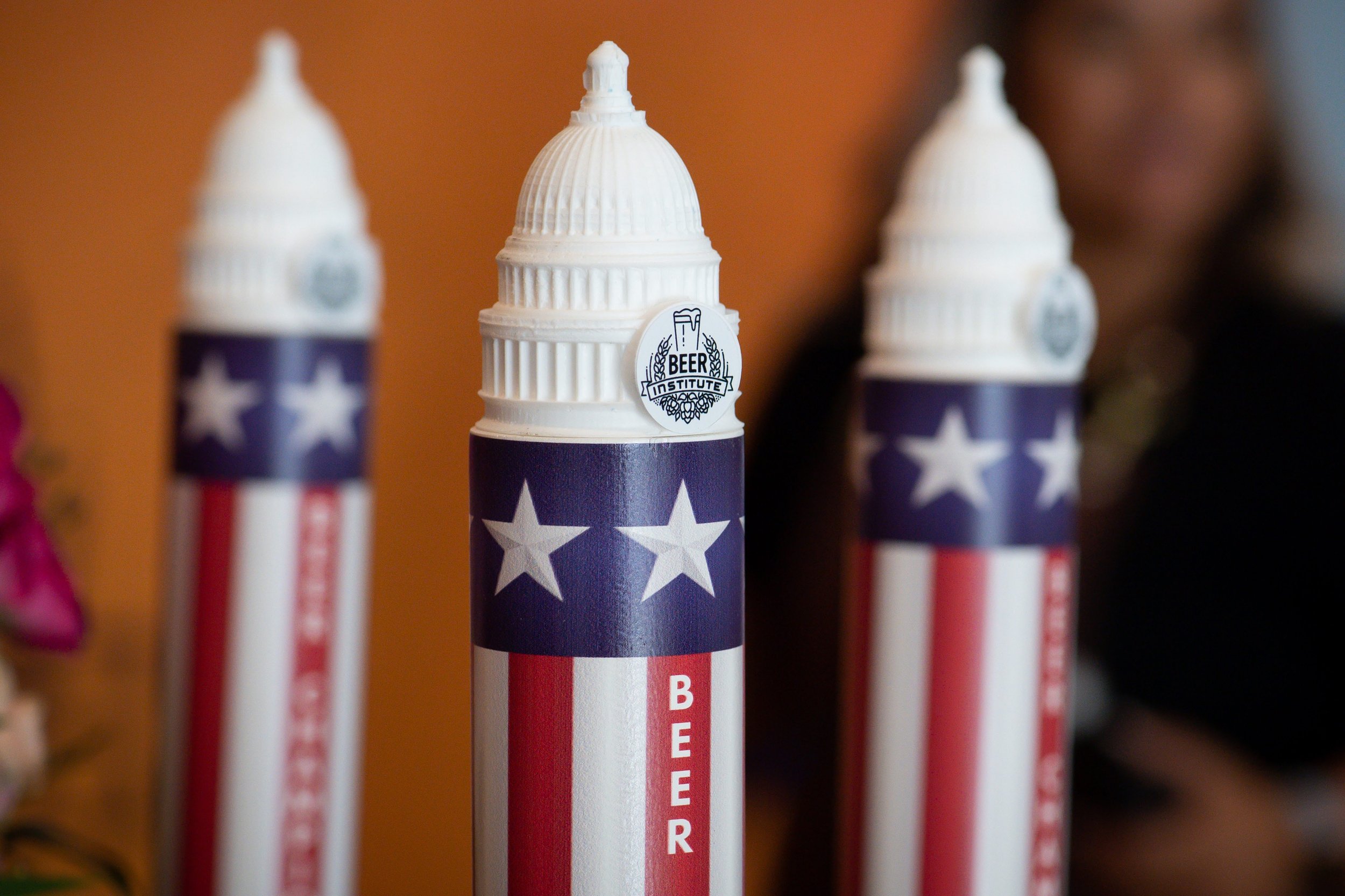

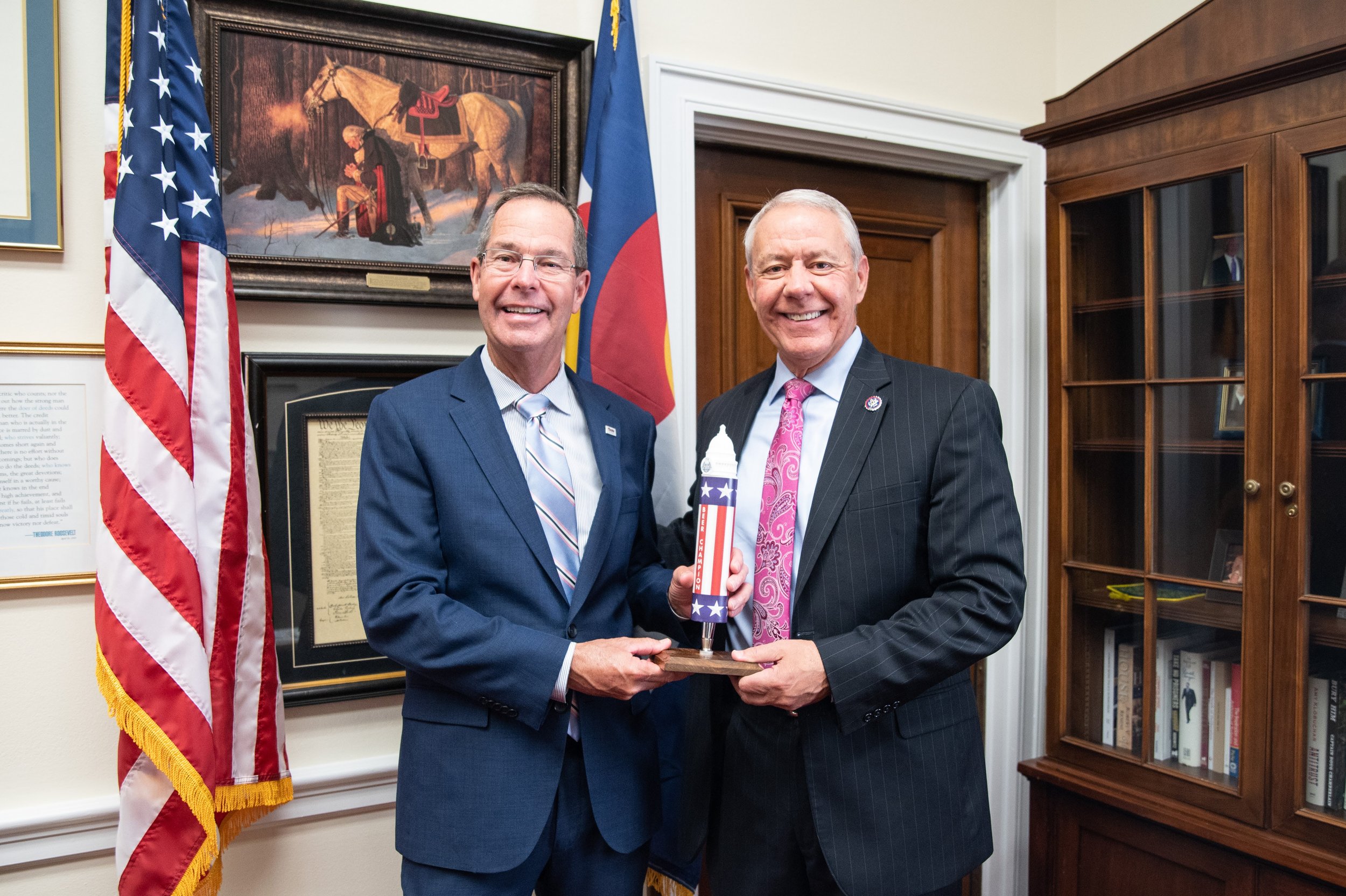
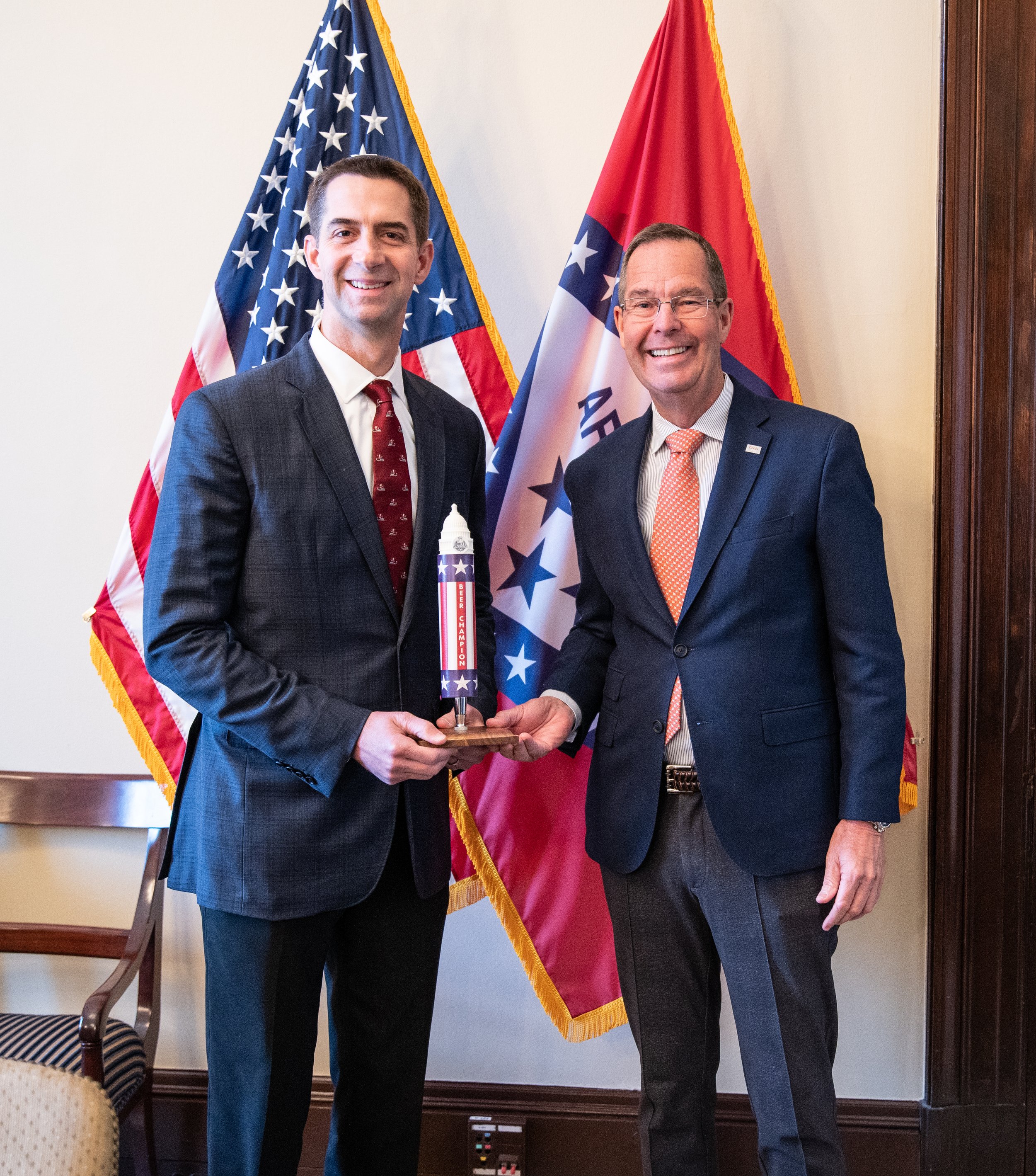

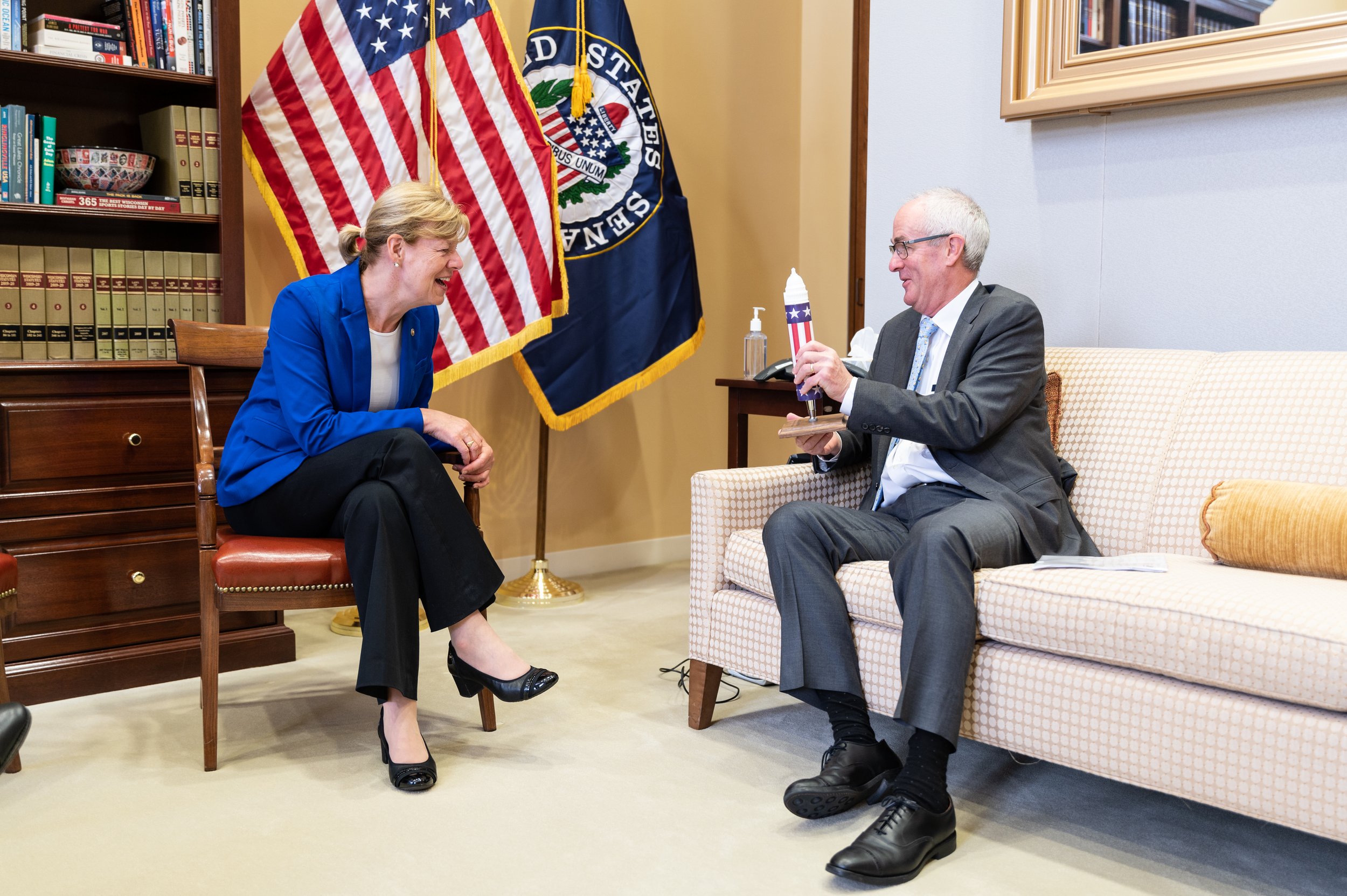



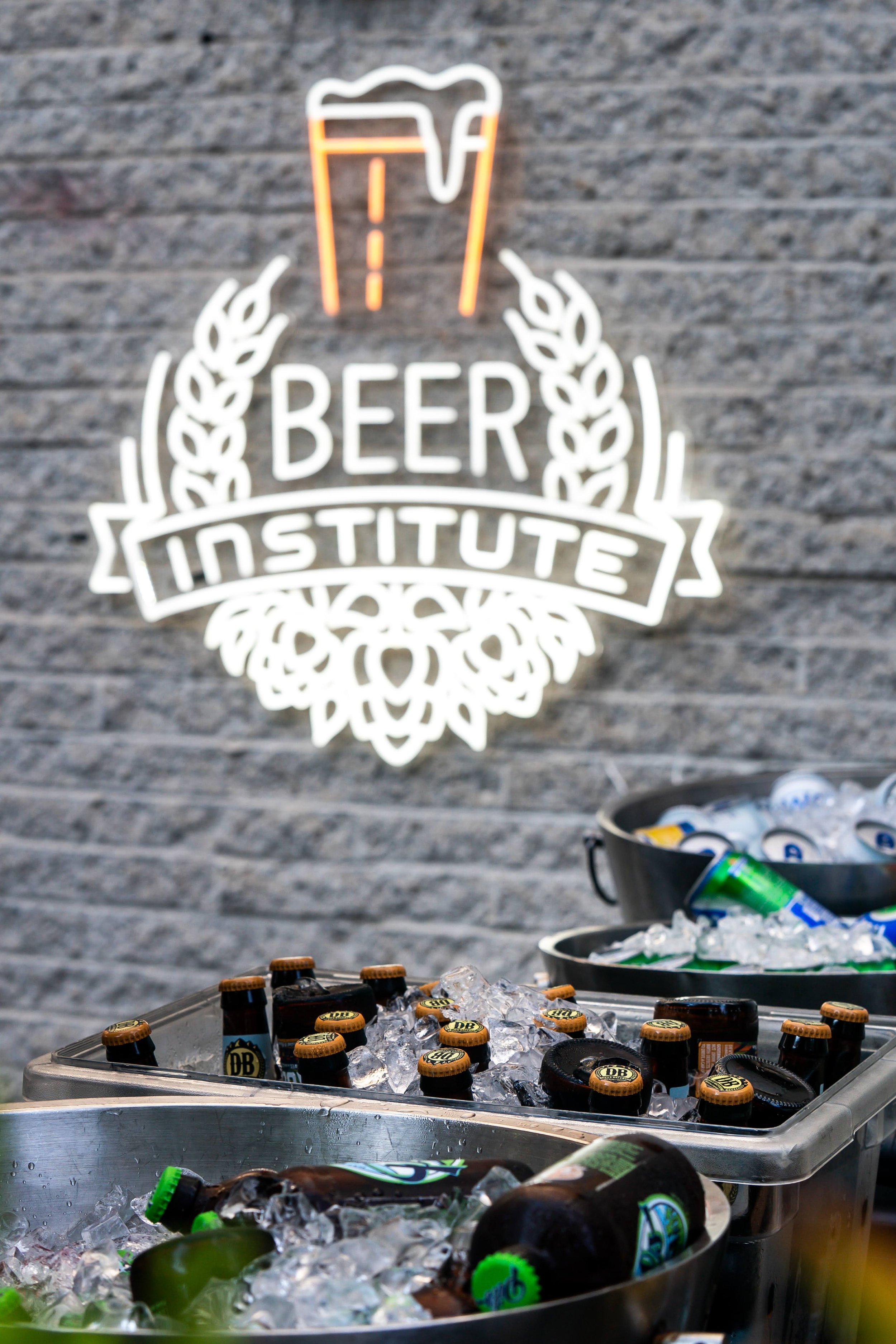




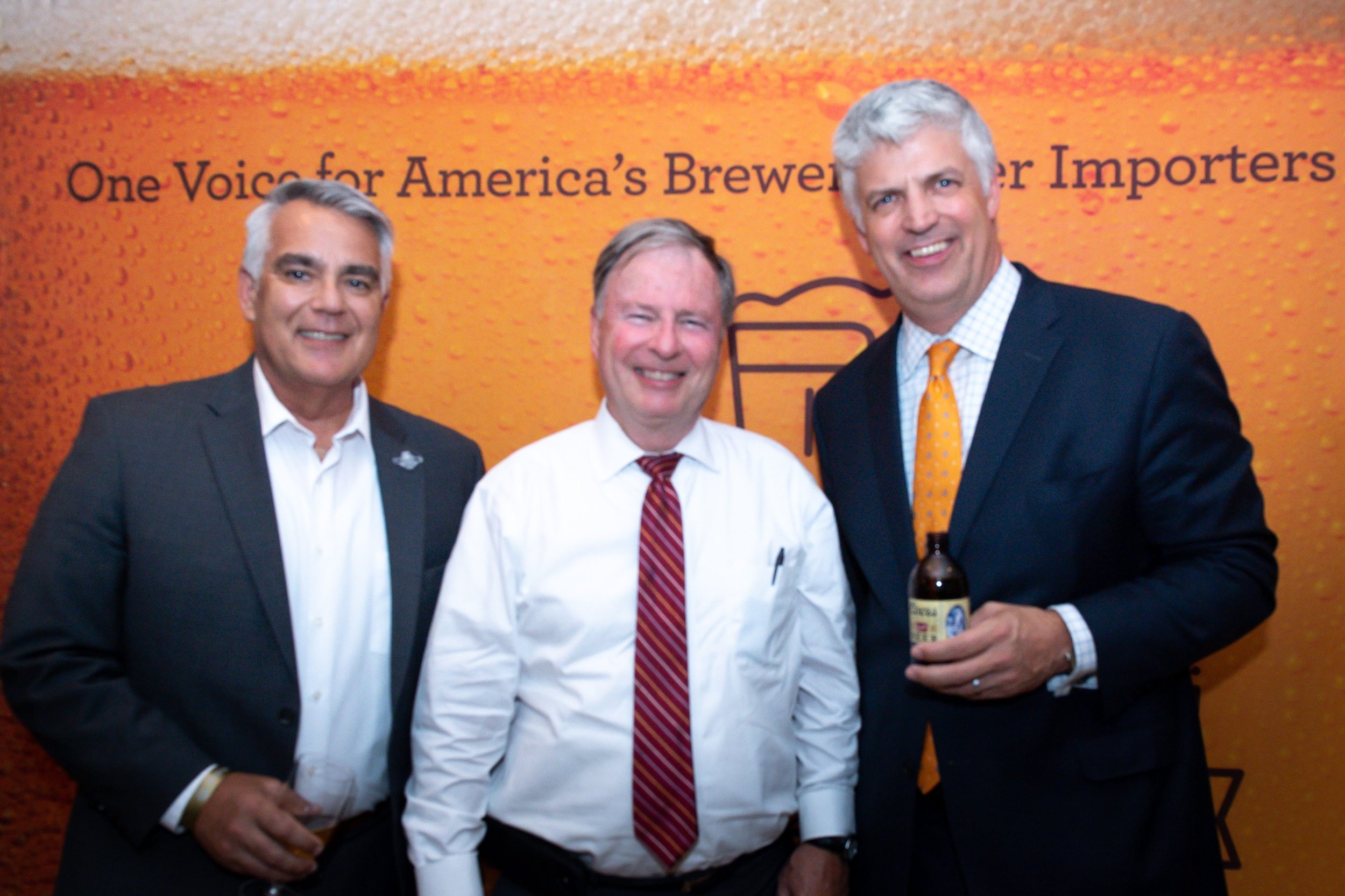

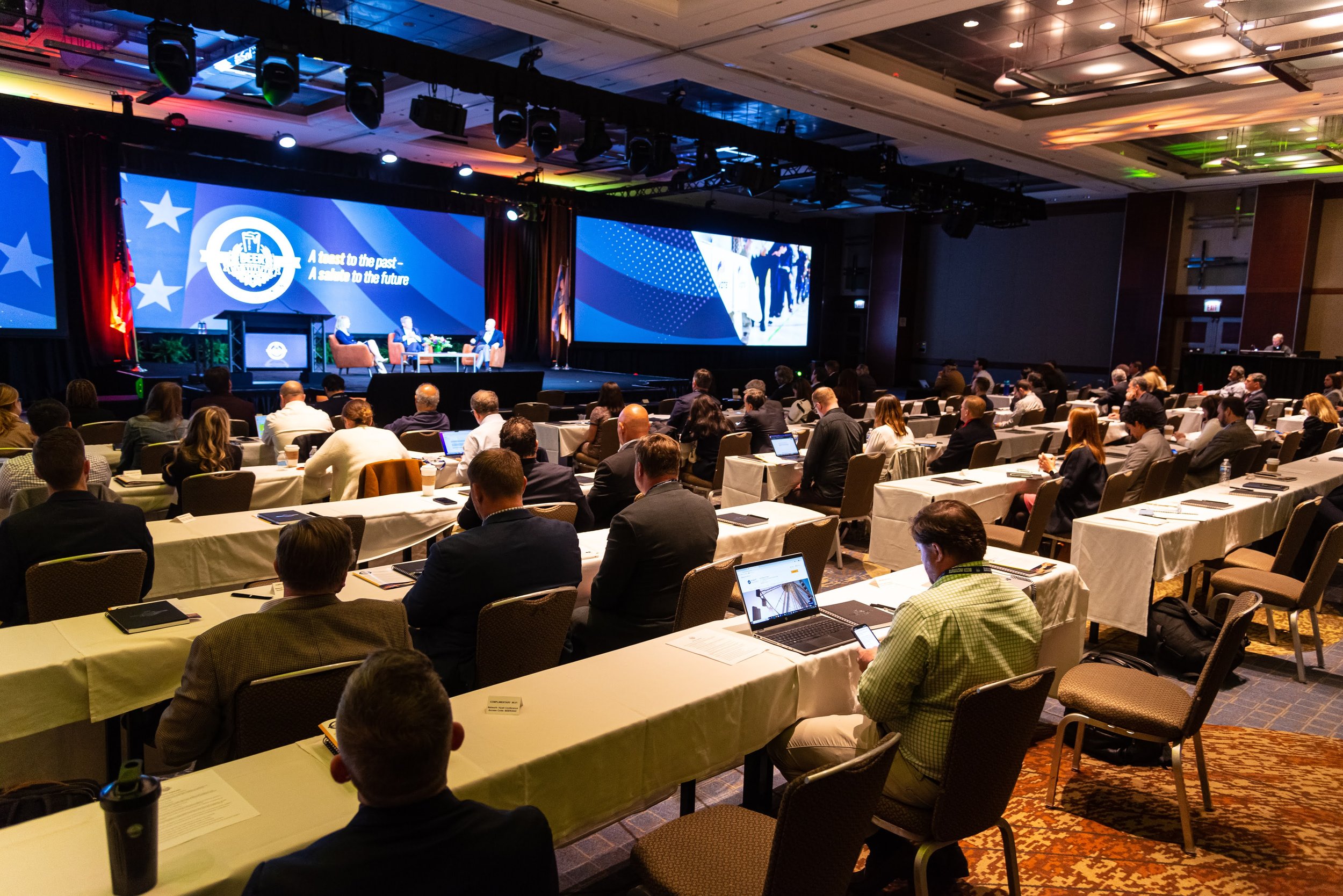
Annual Meeting
On October 11 and 12, the Beer Insitute welcomed members to Chicago for an insightful and entertaining few days during our 2022 Annual Membership Meeting. Attendees were given an informative look at beer industry policy and regulatory priorities in 2022 and what we can expect in 2023. We were honored to have Illinois Governor J.B. Pritzker kick off our meeting. During the conference, participants heard from illuminating guest speakers, including Dr. Edward Slingerland, Ph.D., author of "Drunk: How We Sipped, Danced, and Stumbled Our Way to Civilization," Ryan Ellis of the Center for a Free Economy and Melissa Fiman of NielsenIQ. We also heard from internal beer experts, including Beer Institute Vice President of Research Danelle Kosmal and state advocacy experts from our member companies, including Melissa Ameluxen (Anheuser-Busch), Darcy DaCosta (Molson Coors), David Morgenstern (HEINEKEN USA) and Zuzy Zvarova (Boston Beer).
We rounded out this year's Annual Membership Meeting with a dinner reception hosted by Constellation Brands on the observation deck of the 94th floor of the John Hancock Center. Guests were able to take in some of the best views of the Chicago skyline and Lake Michigan and enjoy a make-your-own michelada bar and lively music from a mariachi band. Attendees also experienced the sights on 360 Chicago's TILT, a thrill ride that offers visitors unique downward-facing views from 1,030 feet above the Magnificent Mile.
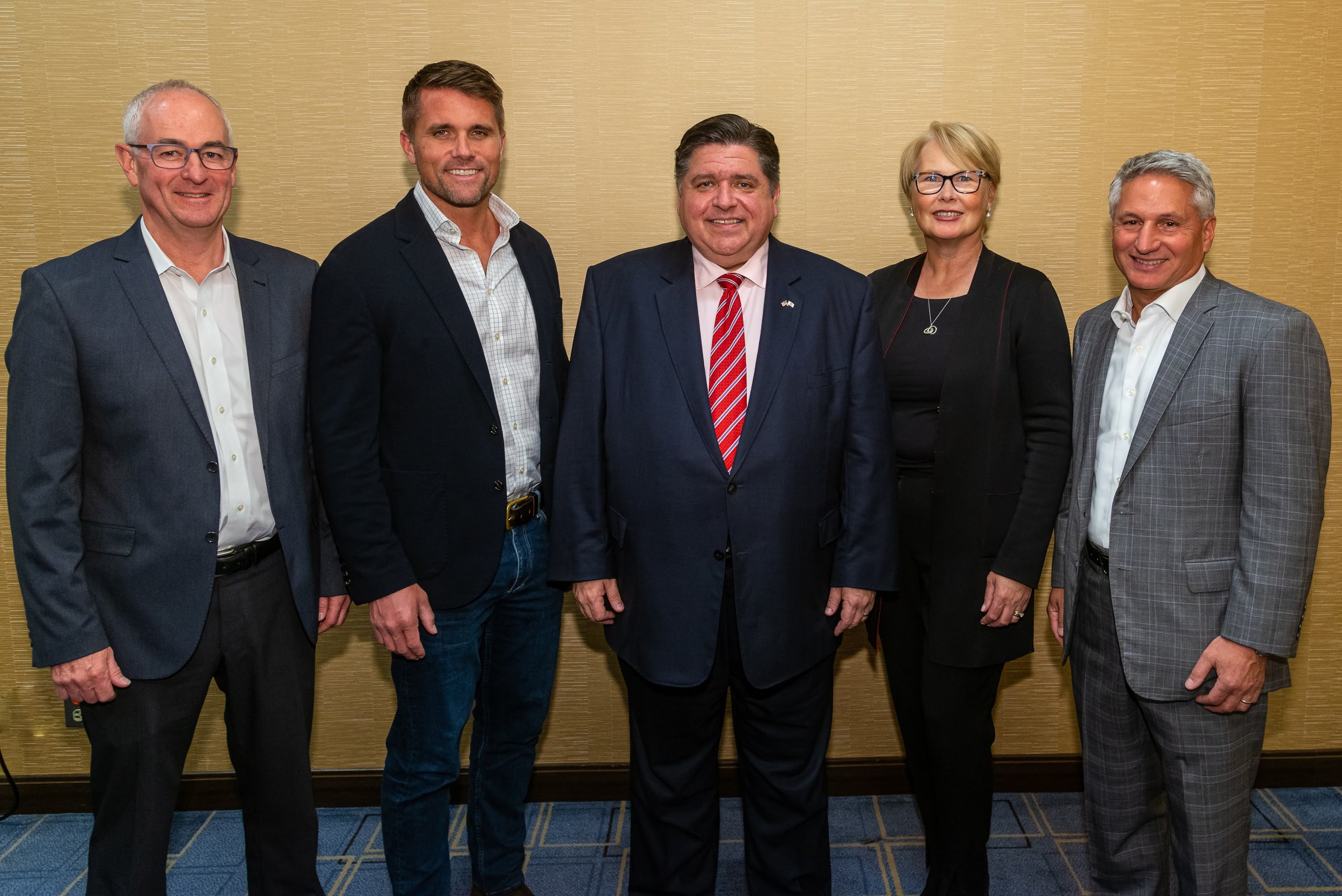
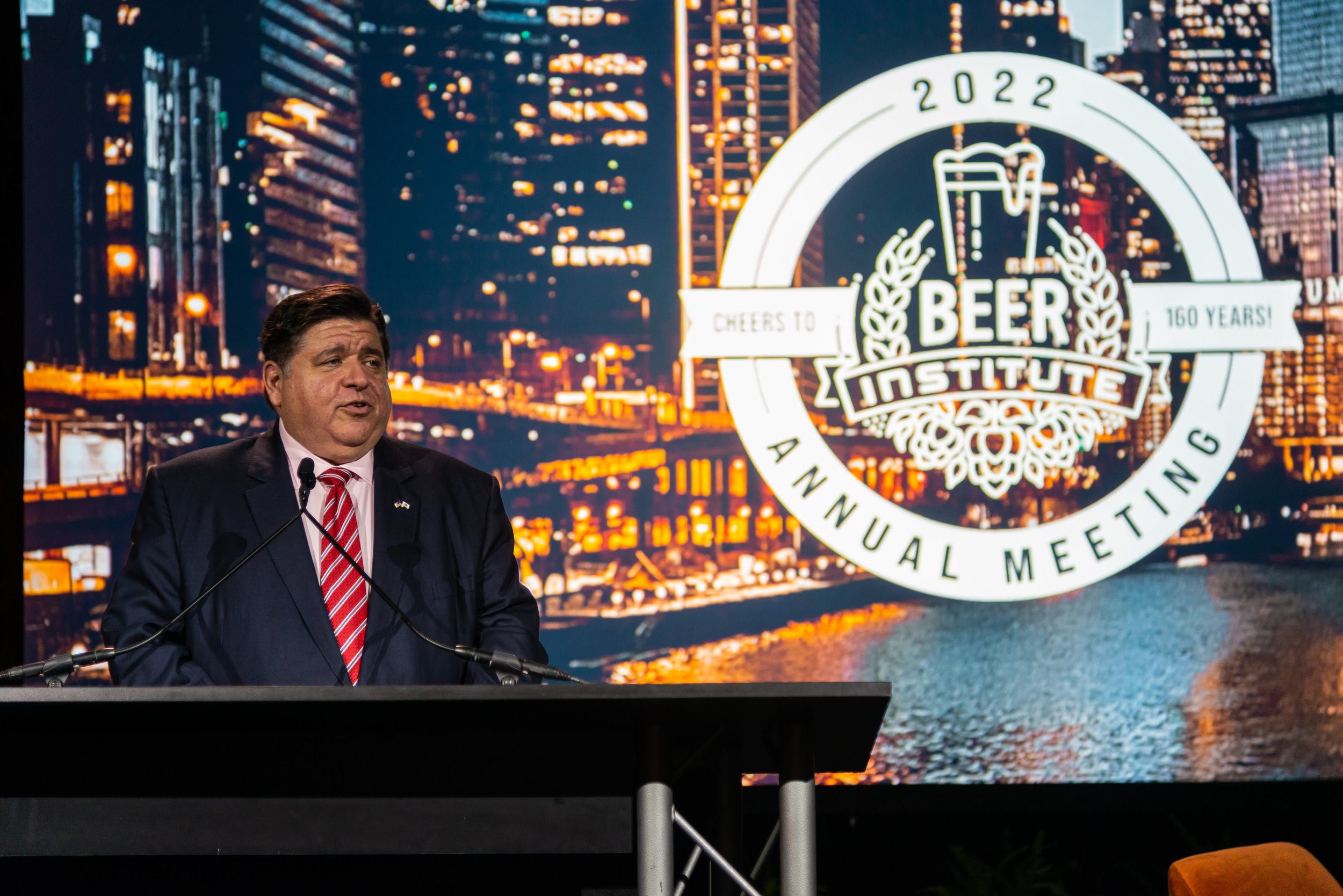
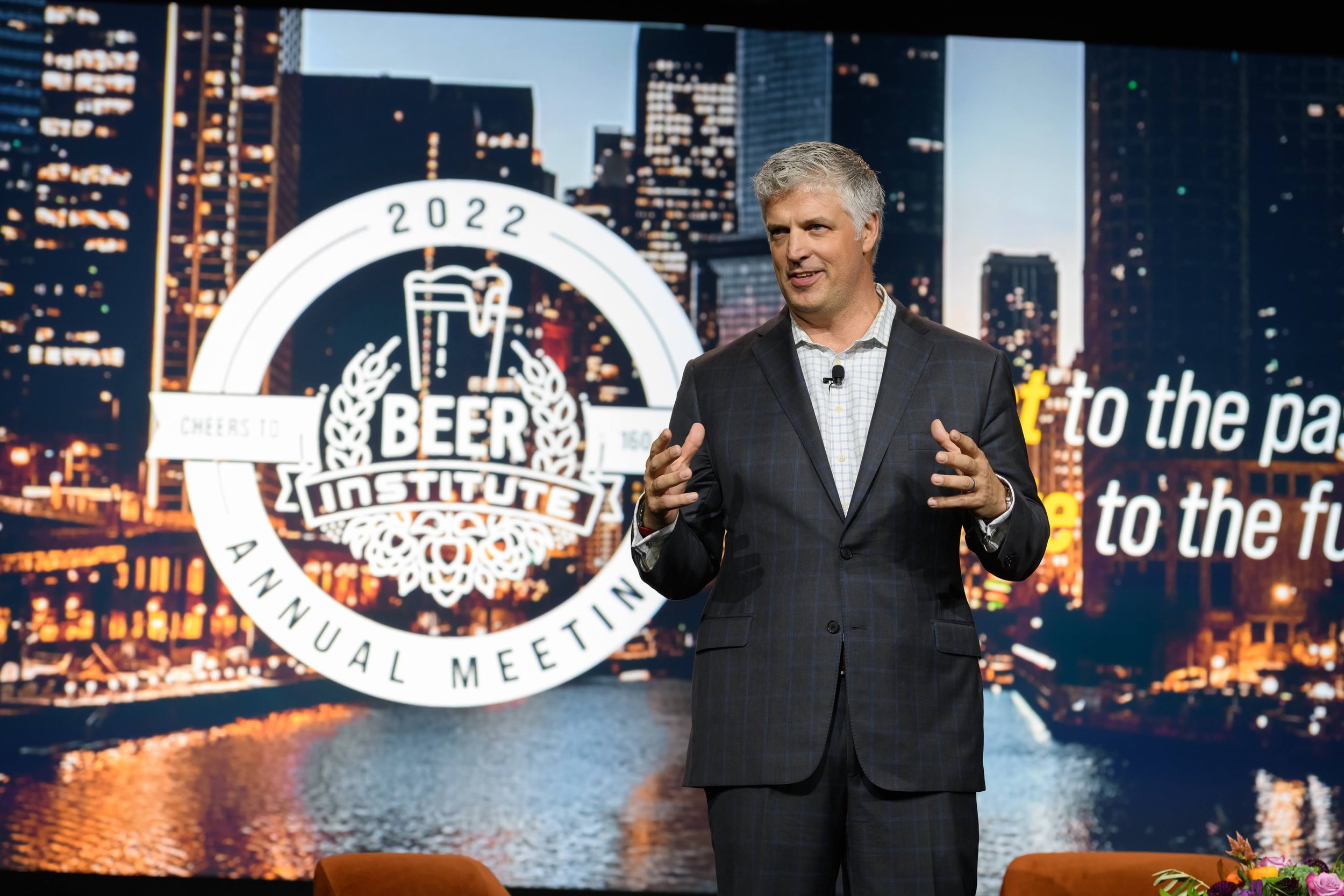



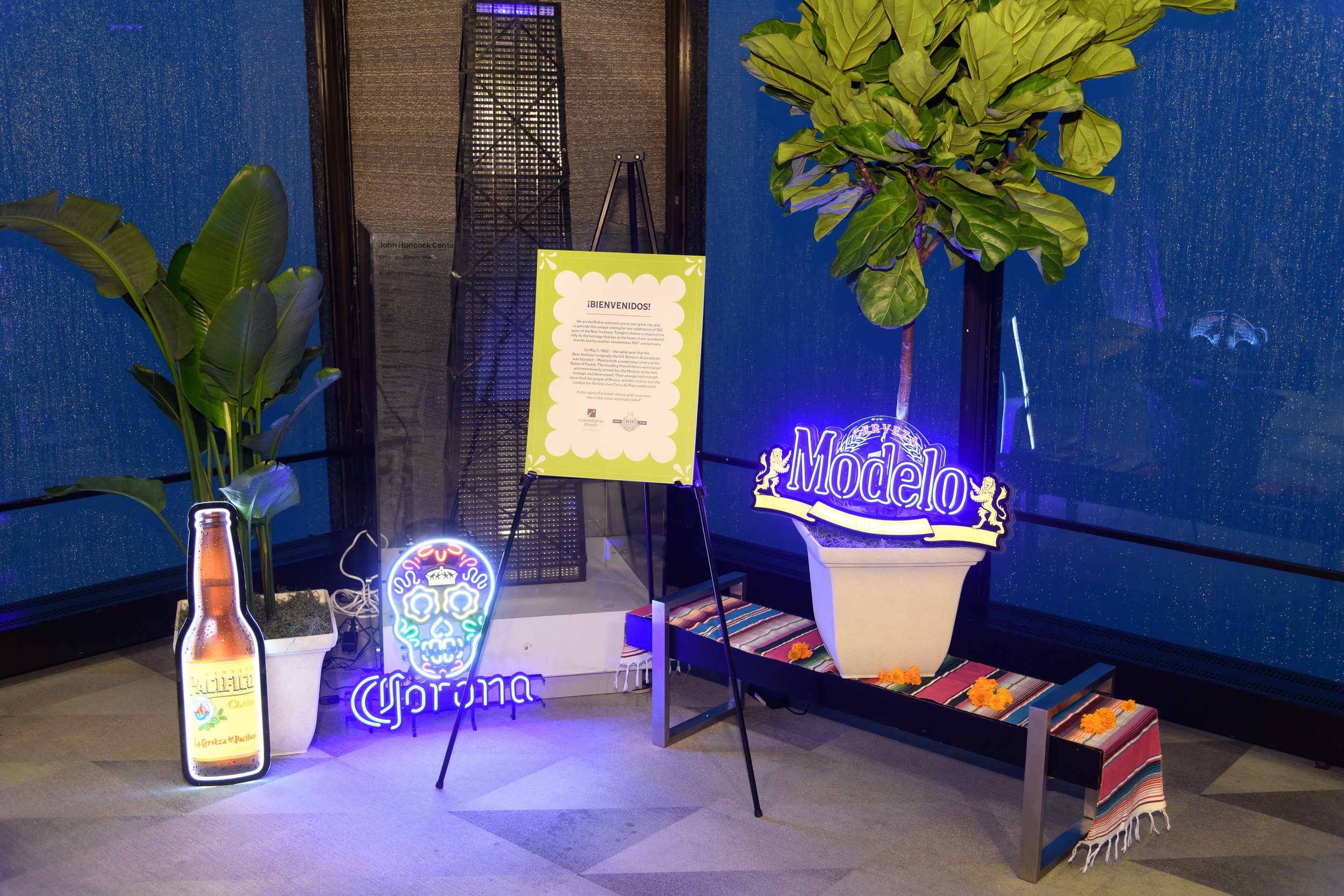

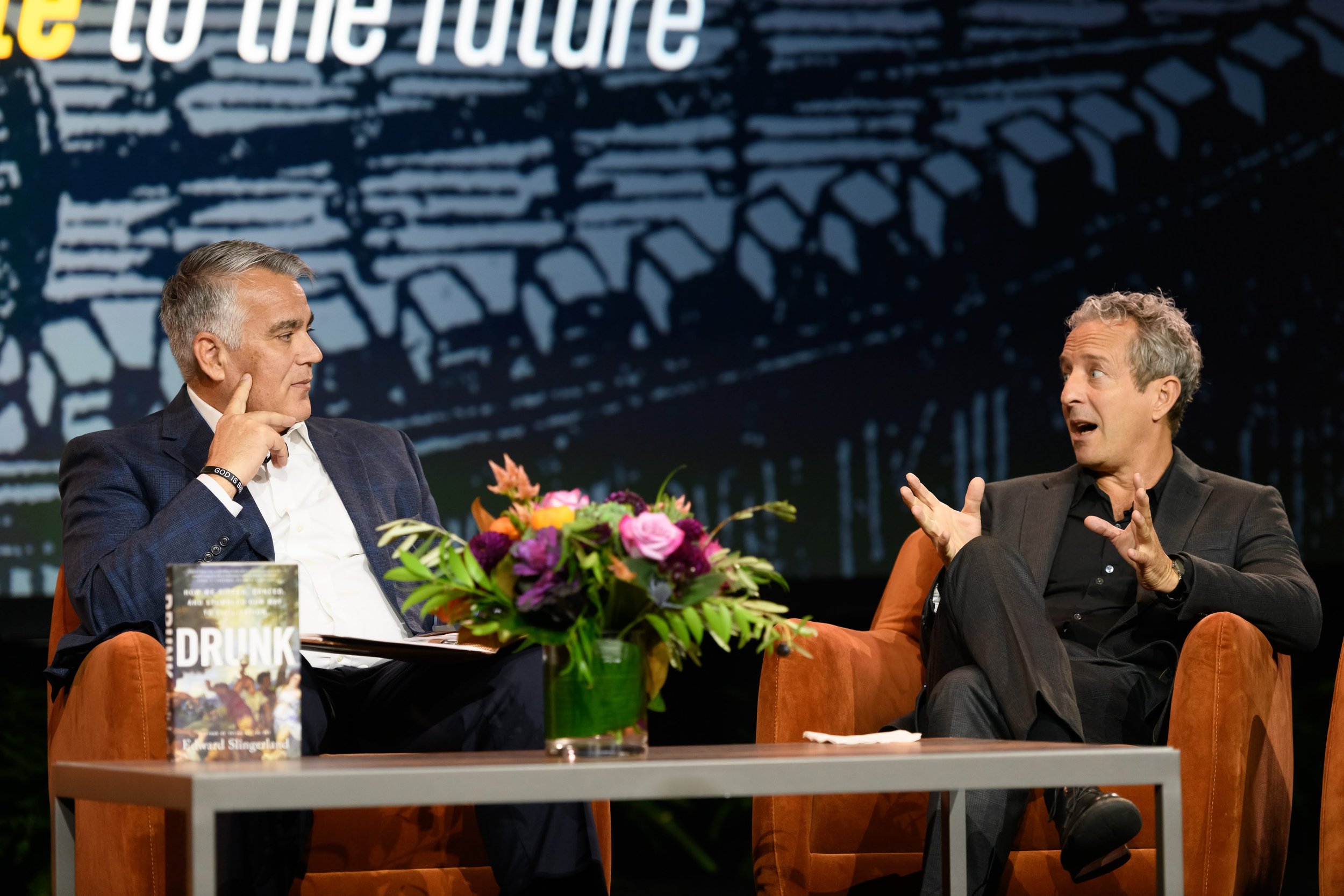
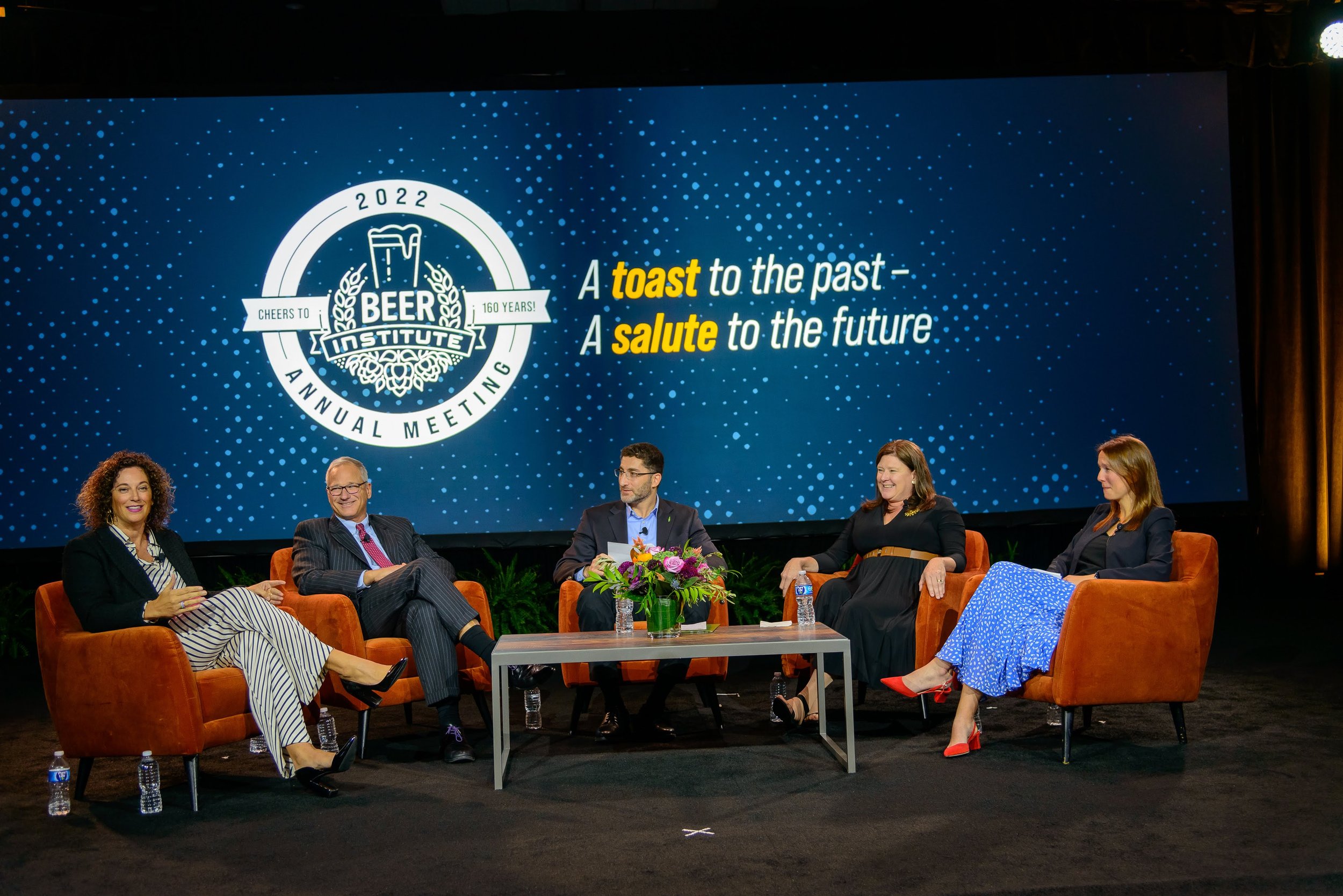
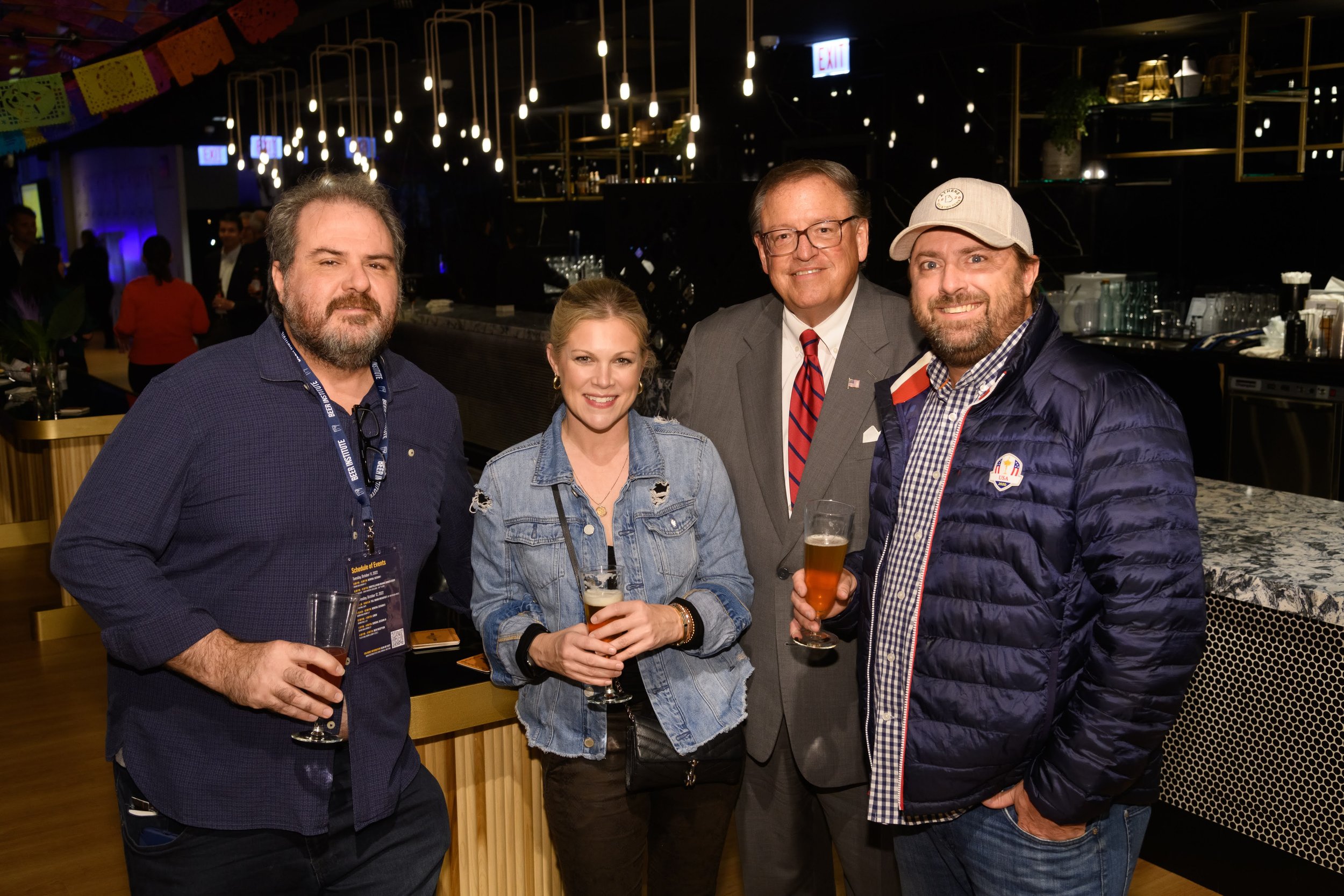
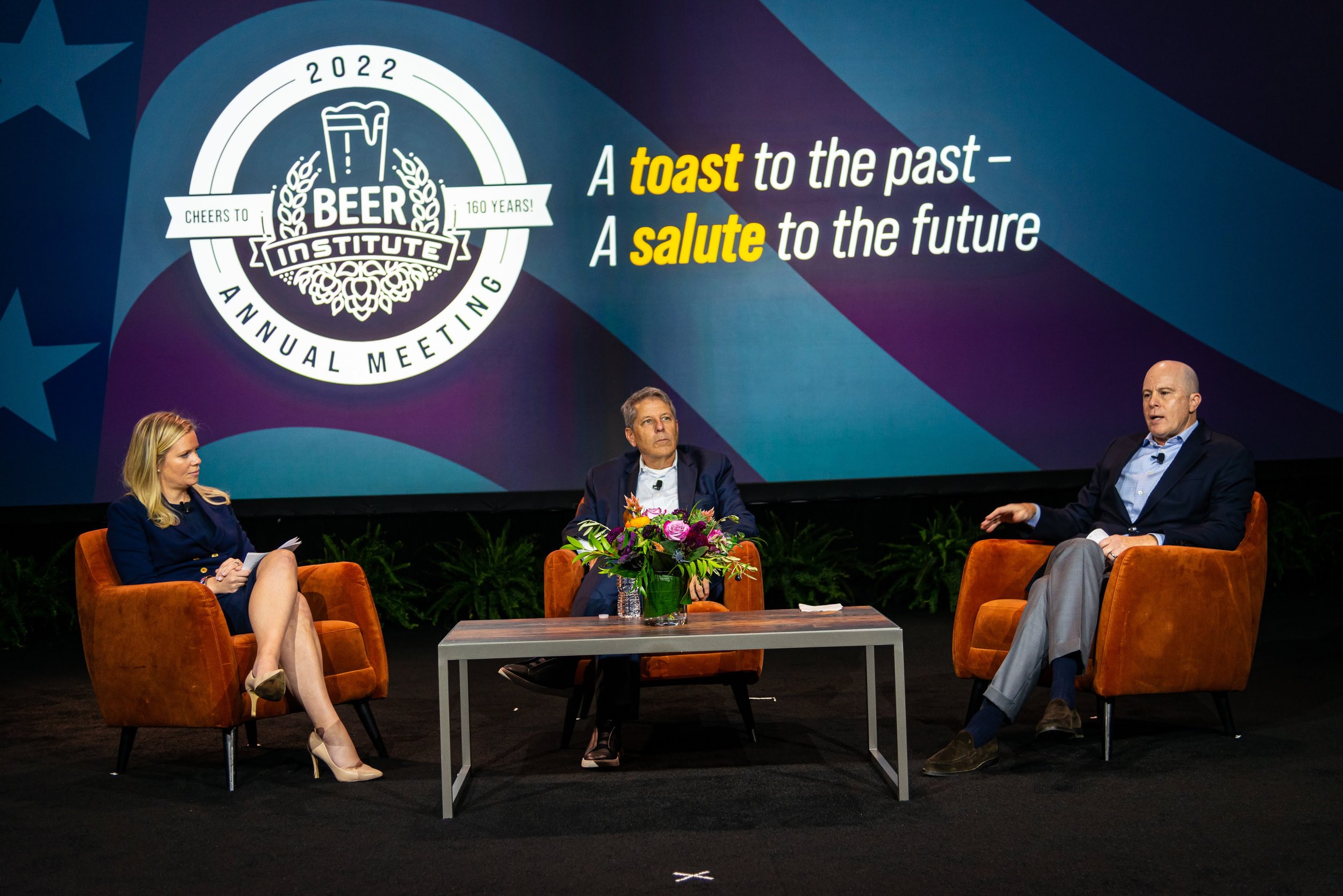
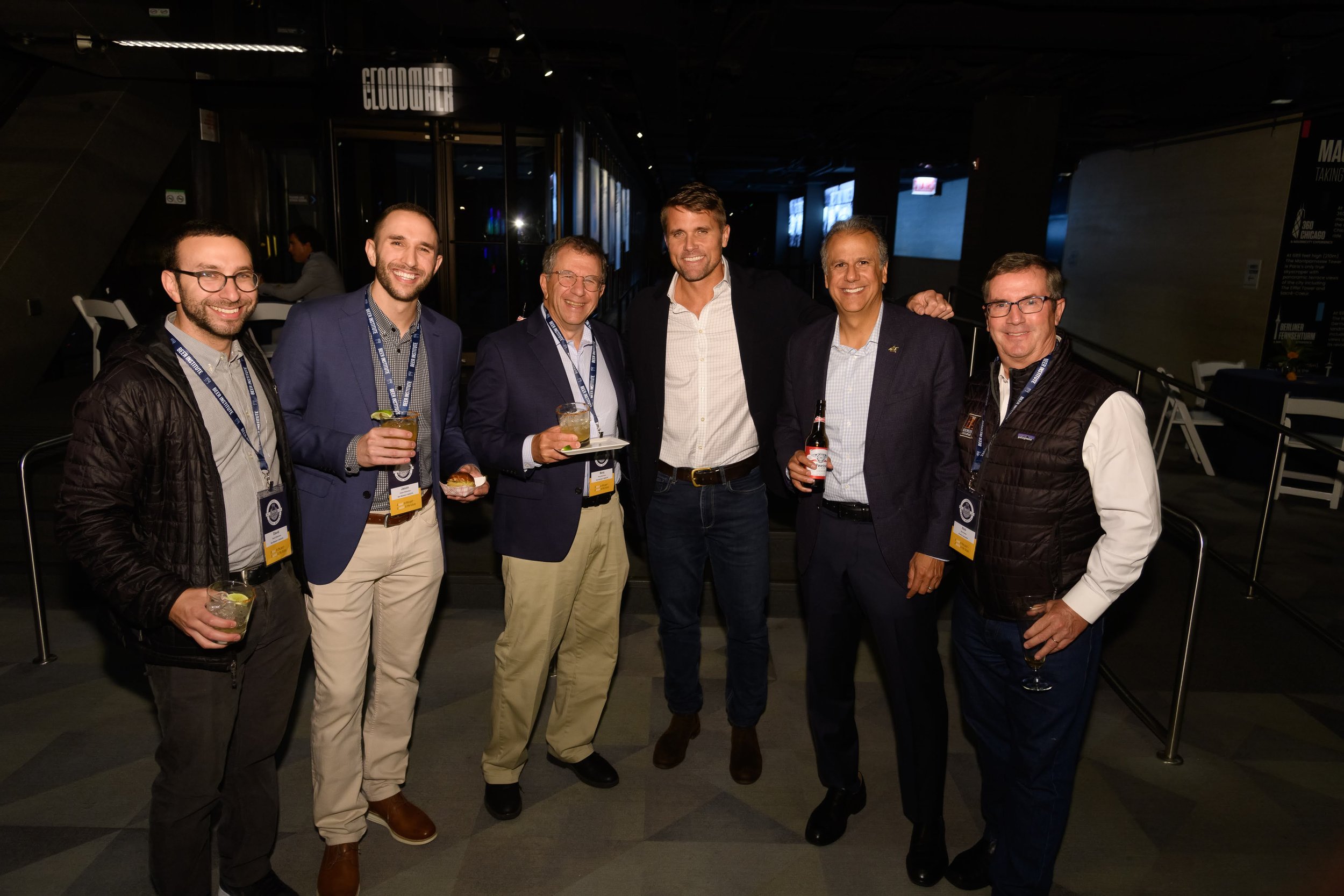

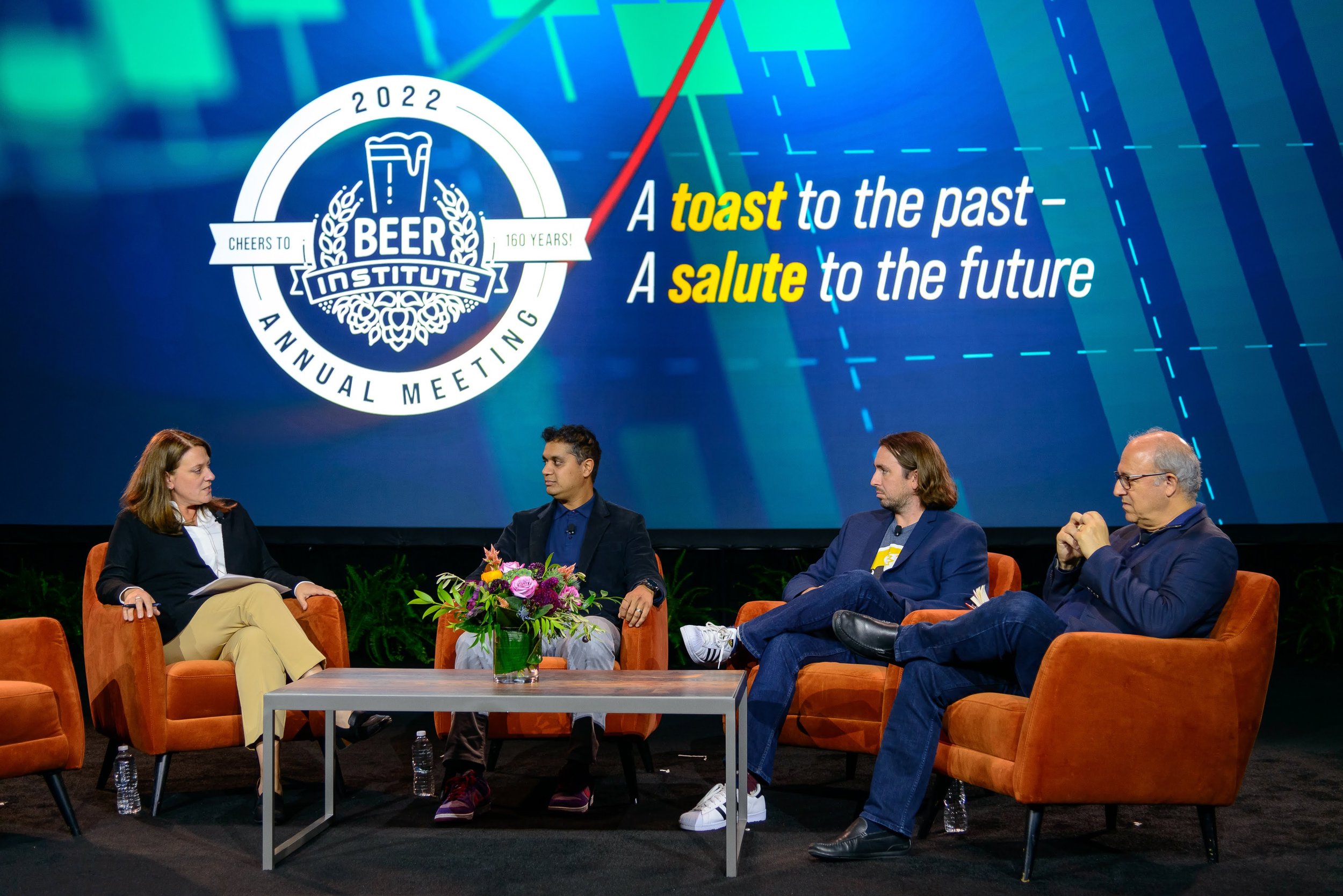
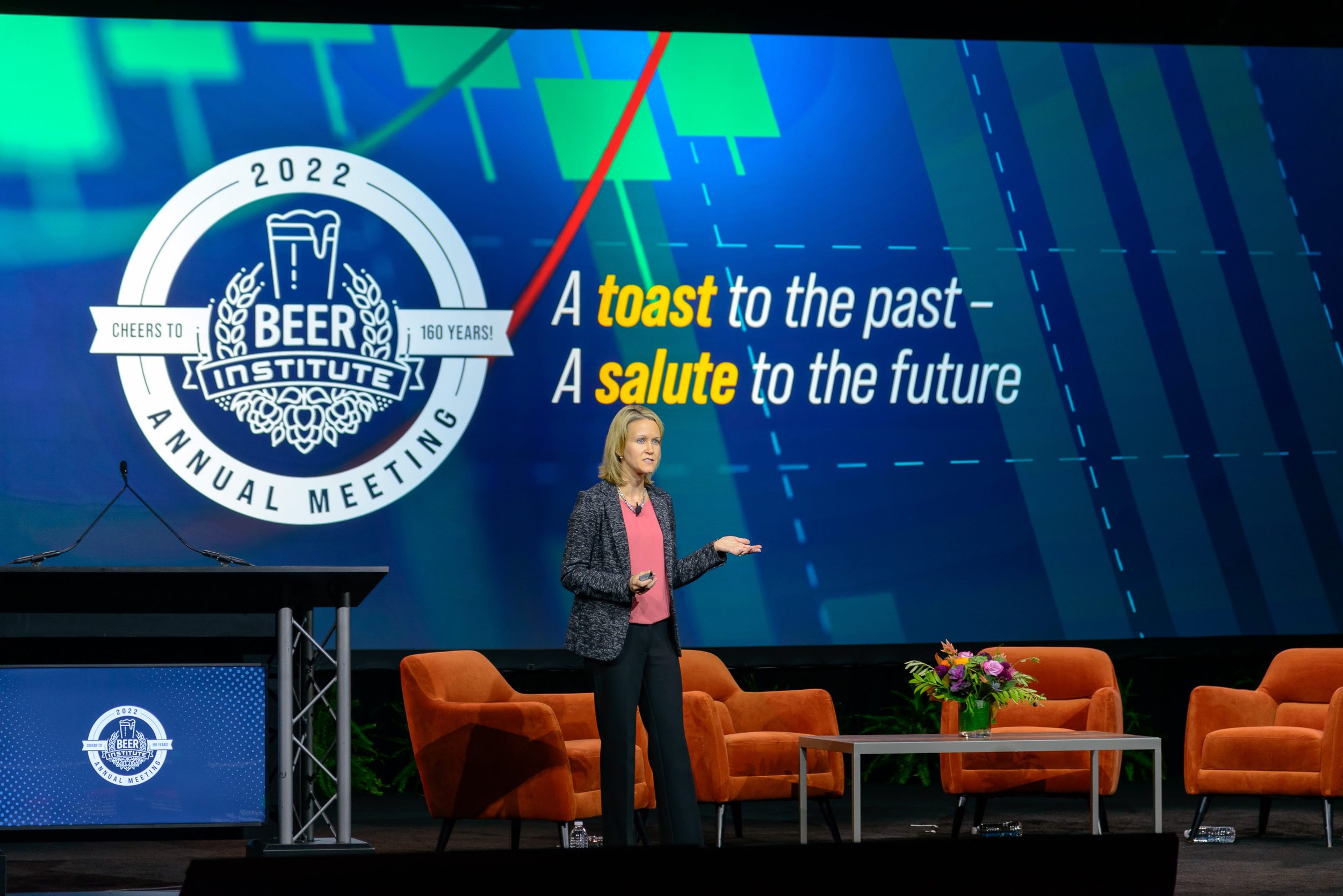

Frederick C. Miller Scholarship
The Frederick C. Miller Memorial Scholarship to the University of Notre Dame was established in 1955 in memory of the late Frederick C. Miller—former president of the Miller Brewing Company—who served the brewing community with dedication and leadership as a Notre Dame alumnus. The scholarship is available to the son or daughter of an active employee of a current dues-paying member or employee of the Beer Institute. This scholarship has enabled many employees of our member companies to send their children to this prestigious university. The amount awarded is based on the availability of resources from the scholarship fund, the number of qualified applicants and the student’s individual financial circumstances. The scholarship's bulletin for the academic year beginning in August/September 2024 will be available in August 2023, with applications due in early January 2024. If you still need to receive the Members' Bulletin for your employees, you can email us at info@beerinstitute.org.
The Beer Institute looks forward to maximizing this scholarship endowment's impact on undergraduate students in the coming years.
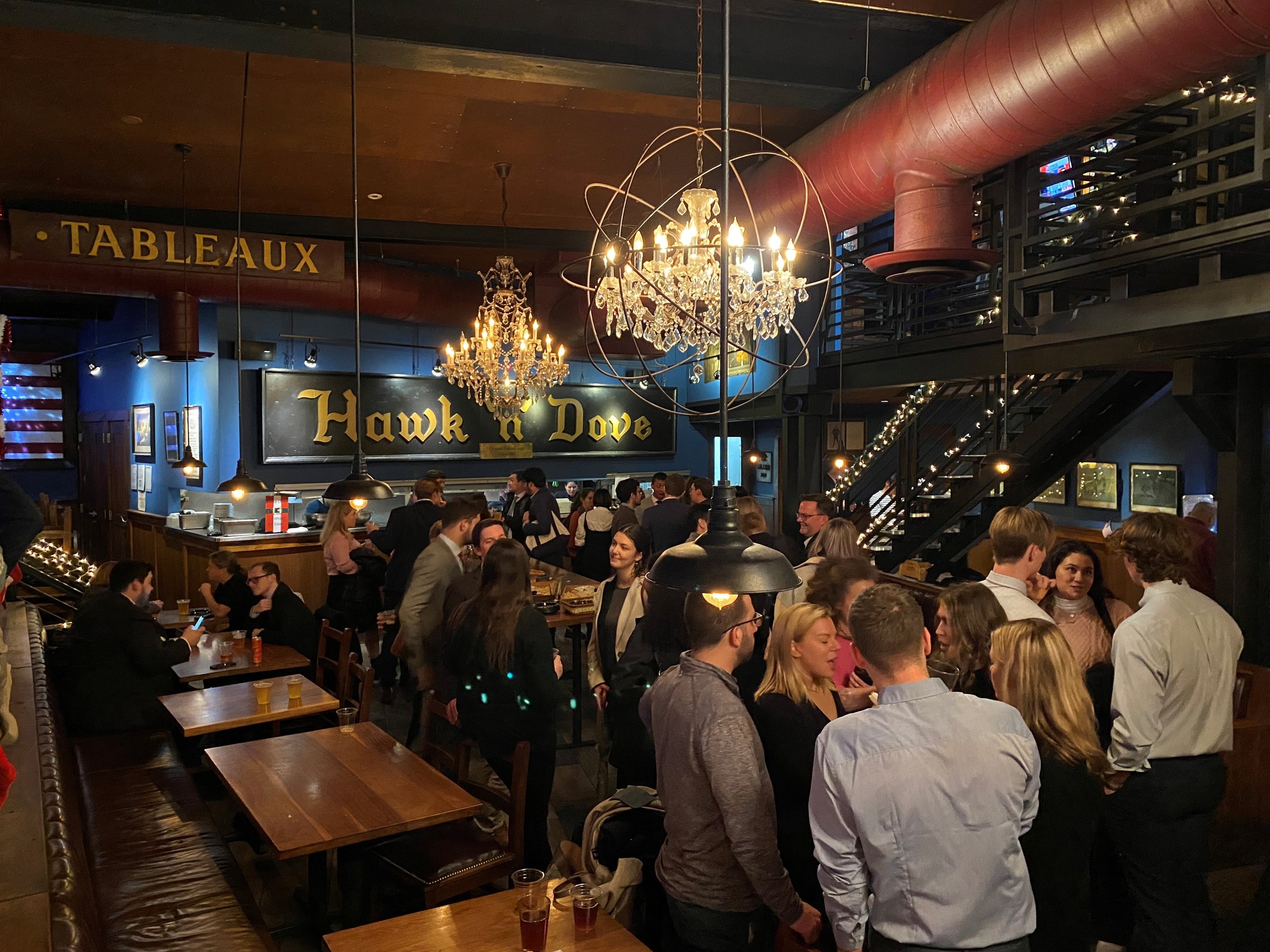
Events at the Bar
As Washington, D.C. emerged from the last two years of COVID restrictions, the Beer Institute team took advantage of this newfound freedom by holding in-person happy hours and receptions with reporters and stakeholder groups from around town. We hosted over 25 groups this year at the Beer Institute bar or an offsite venue. We were excited to host groups, including the Daily Caller, Tax Foundation, National Association of Manufacturers, Senate Press Secretaries Association, House Chiefs of Staff Association and other key Washington stakeholders and media organizations. The public affairs team also entertained groups from TIME Magazine, Fox News, CBS News and more. These receptions and happy hours are vital for establishing and maintaining the Beer Institute as a fixture of social events in Washington and as the preeminent authority on the American beer industry. We will continue this momentum and host even more events next year.
Without a CEO for most of the year, Director of Public Affairs Alex Davidson and Vice President of Research Danelle Kosmal led the charge for media events and on-the-record conversations, speaking with national and local media. Alex appeared on Bloomberg Radio over Memorial Day weekend and Danelle and Alex shared the beer industry's story on local stations in key beer states like Michigan, New Hampshire, Oregon, Washington State and Delaware. We are excited for the new Beer Institute President and CEO Brian Crawford to begin engaging with the media in the coming year.
The Beer Institute public affairs team also hosted two beer-pairing dinners for reporters and beer industry figures in 2022. We worked with Master Cicerone Neil Witte and local chefs to curate a multi-course menu with unique beer pairings to underscore beer's versatility and special place in the American home. At our first pairing dinner at the JW Marriott in Washington during our Hill Climb, we welcomed reporters from The Hill, Fox News, TIME Magazine, the Washington Examiner and Beer Marketer's INSIGHTS, as well as industry leaders from Anheuser-Busch and Molson Coors. Our second dinner, held in Chicago during our Annual Membership Meeting, included reporters from The Economist, Financial Times and Beer Business Daily, as well as key figures from Molson Coors, Constellation Brands and HEINEKEN USA. Both dinners were wildly successful at educating and entertaining simultaneously, and we plan to host more in the new year, including one in New York City.
